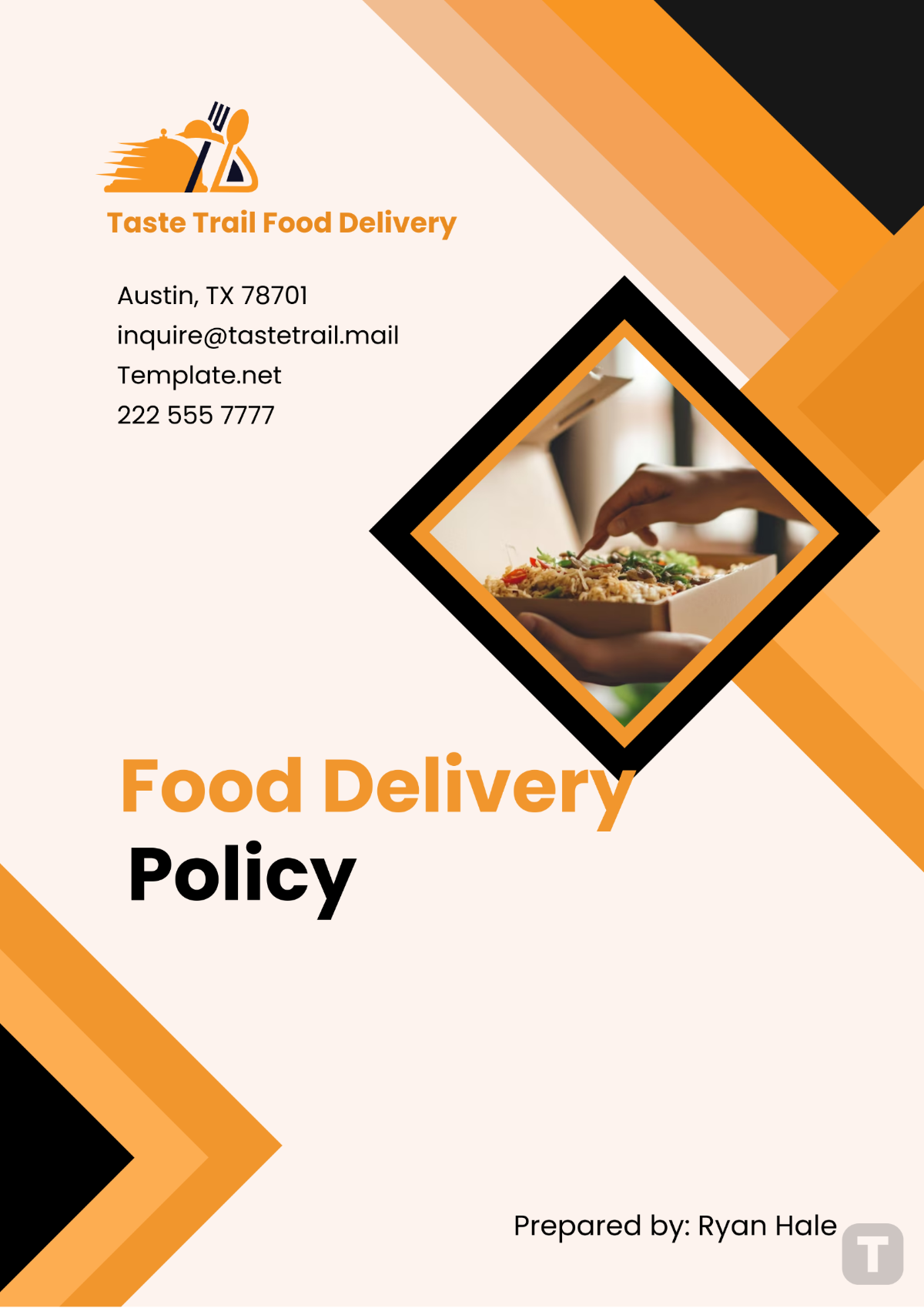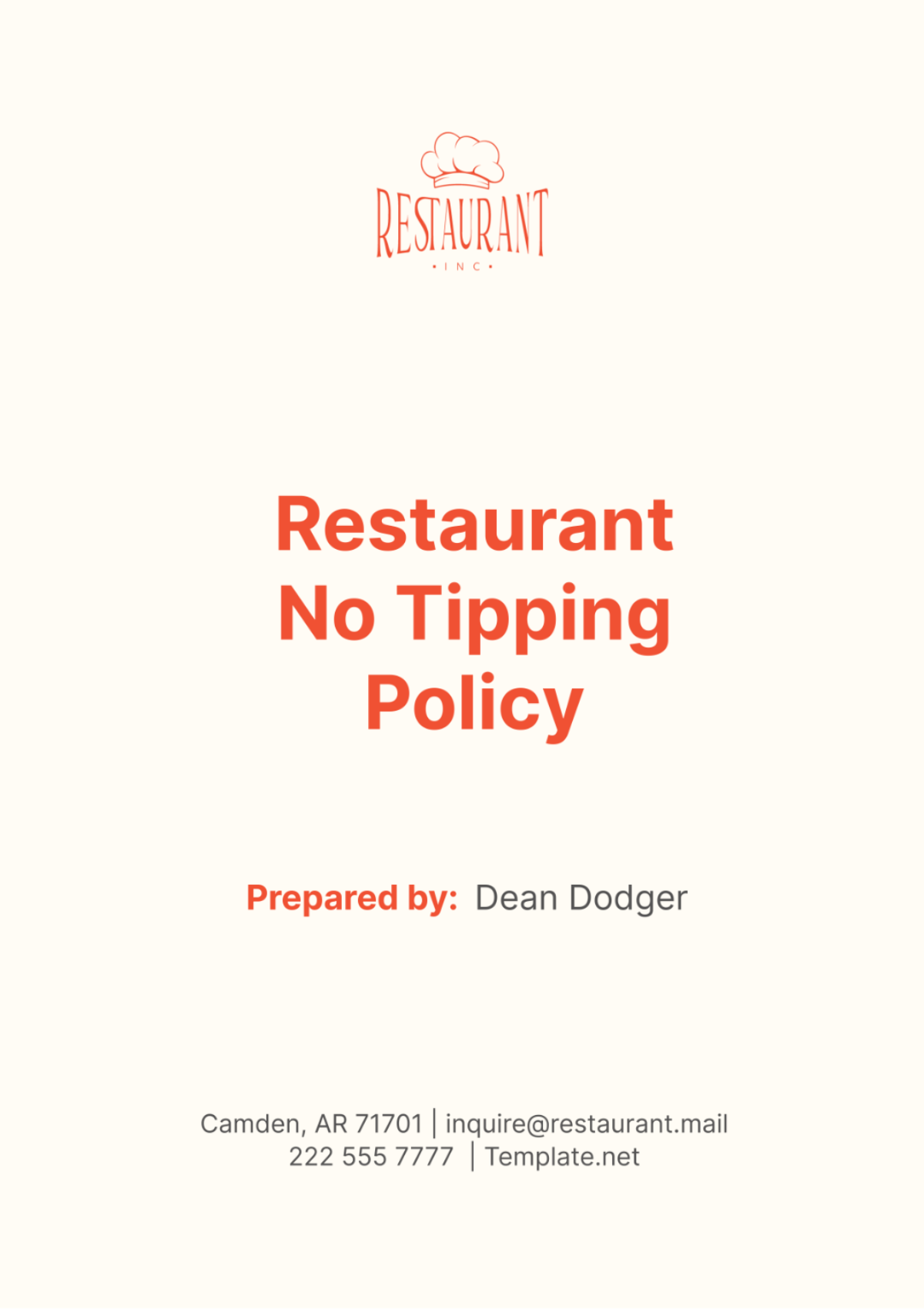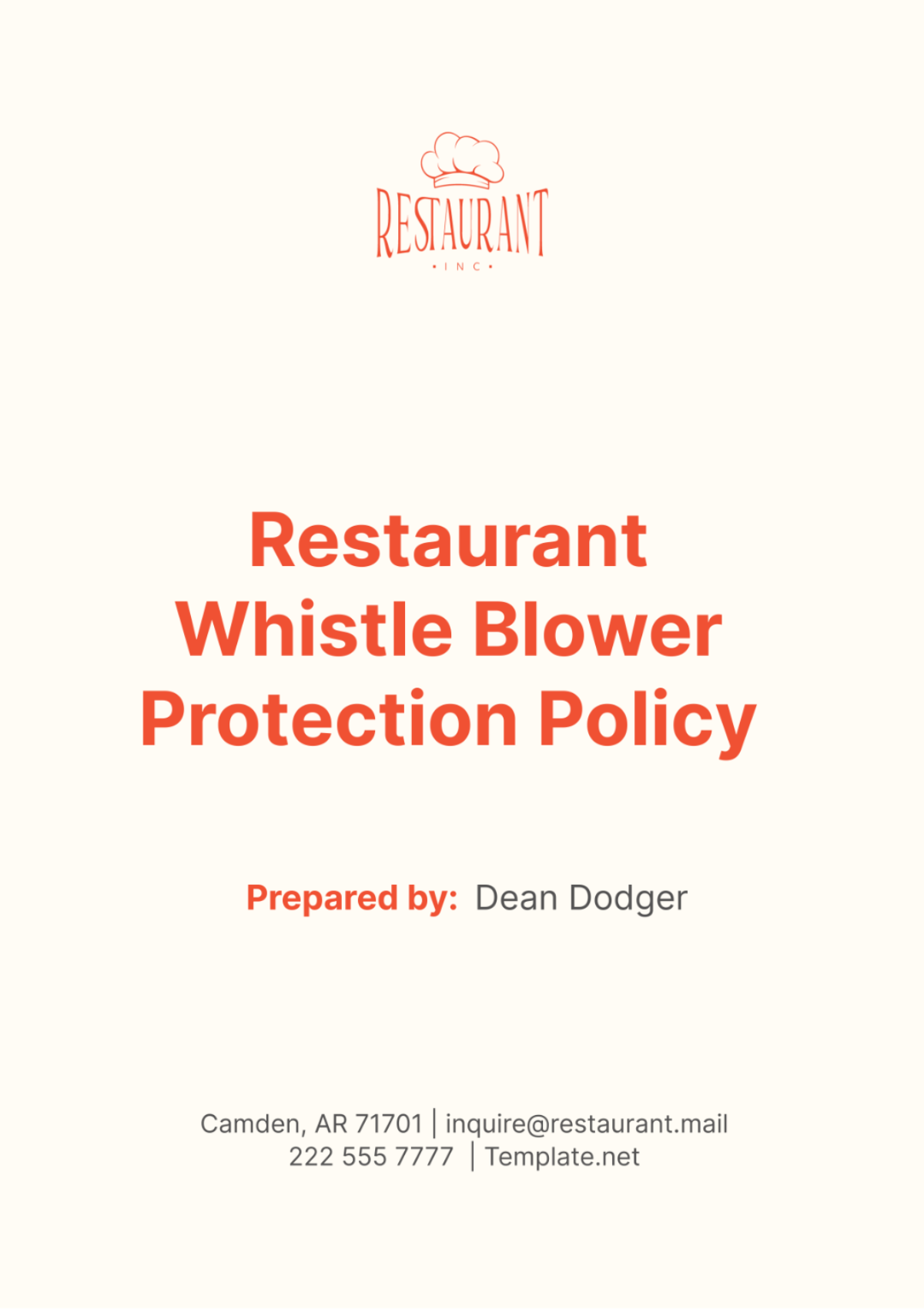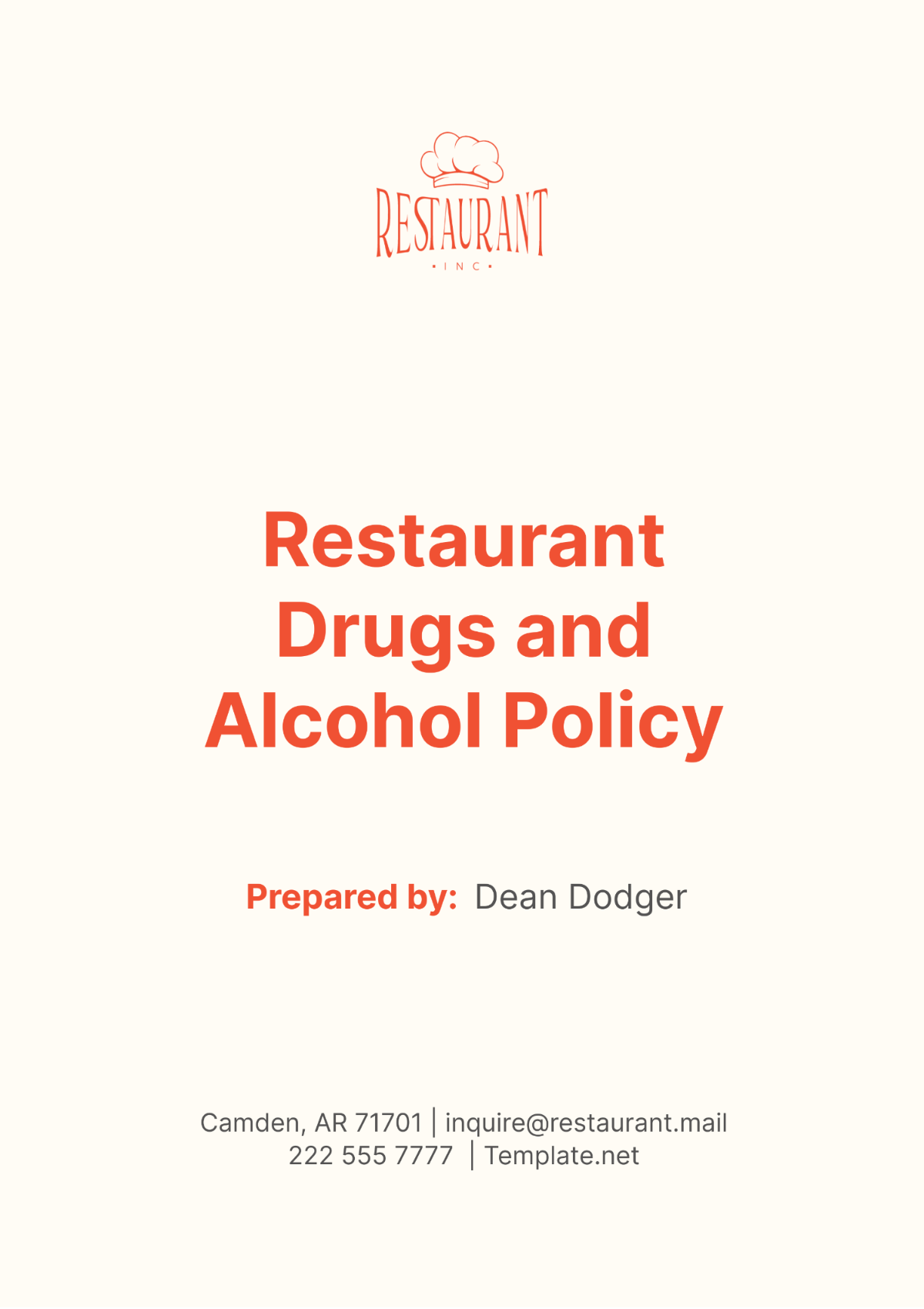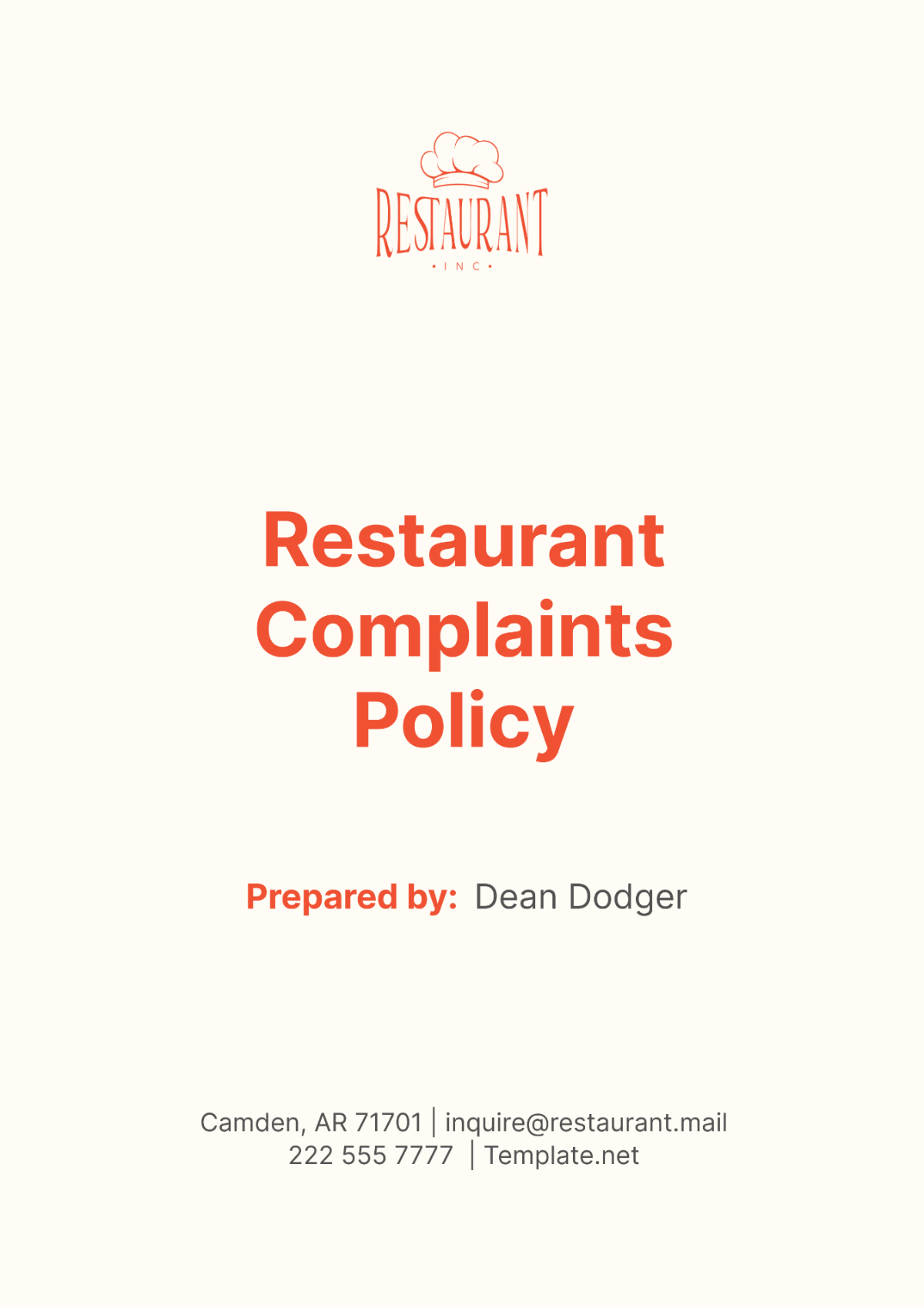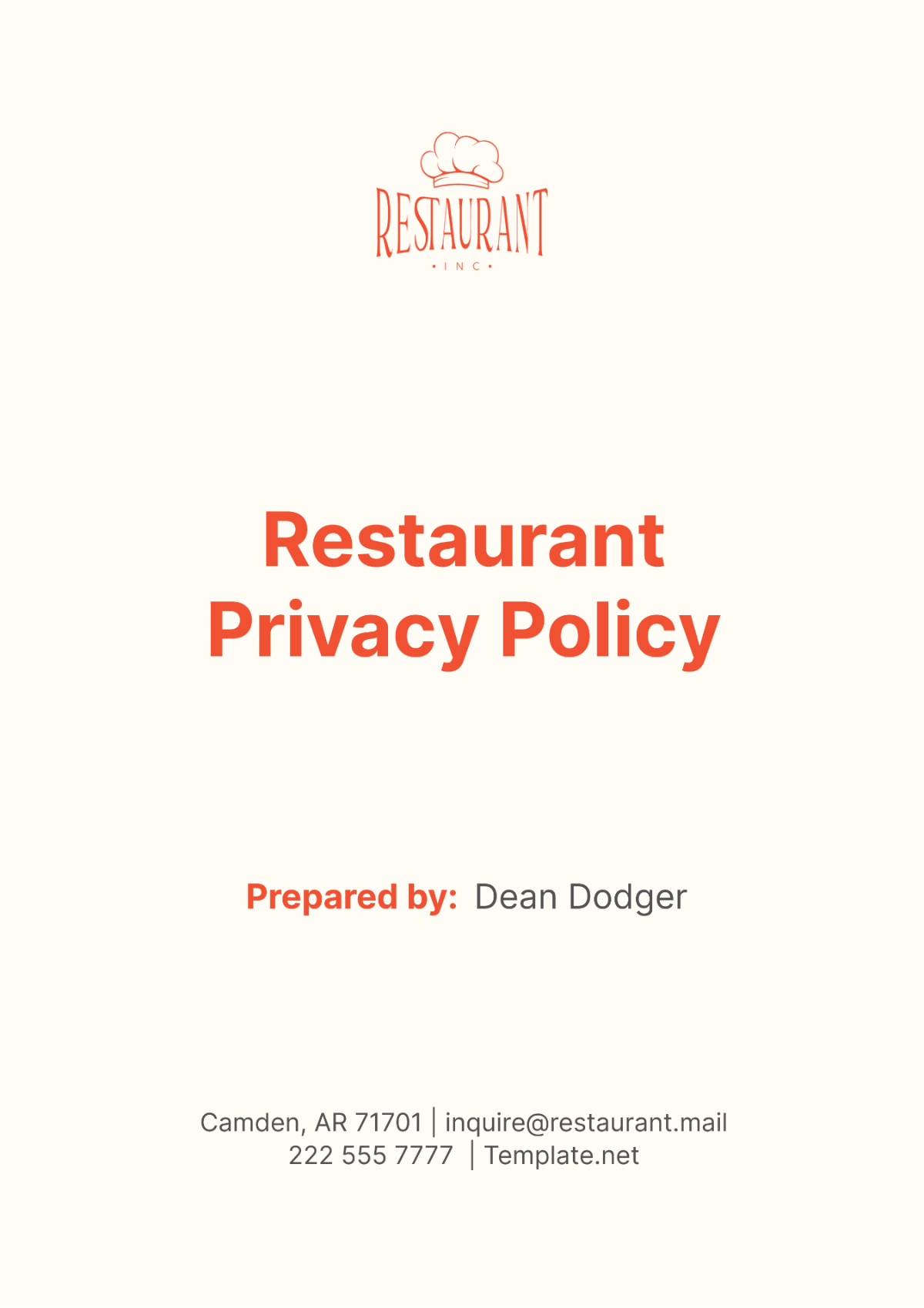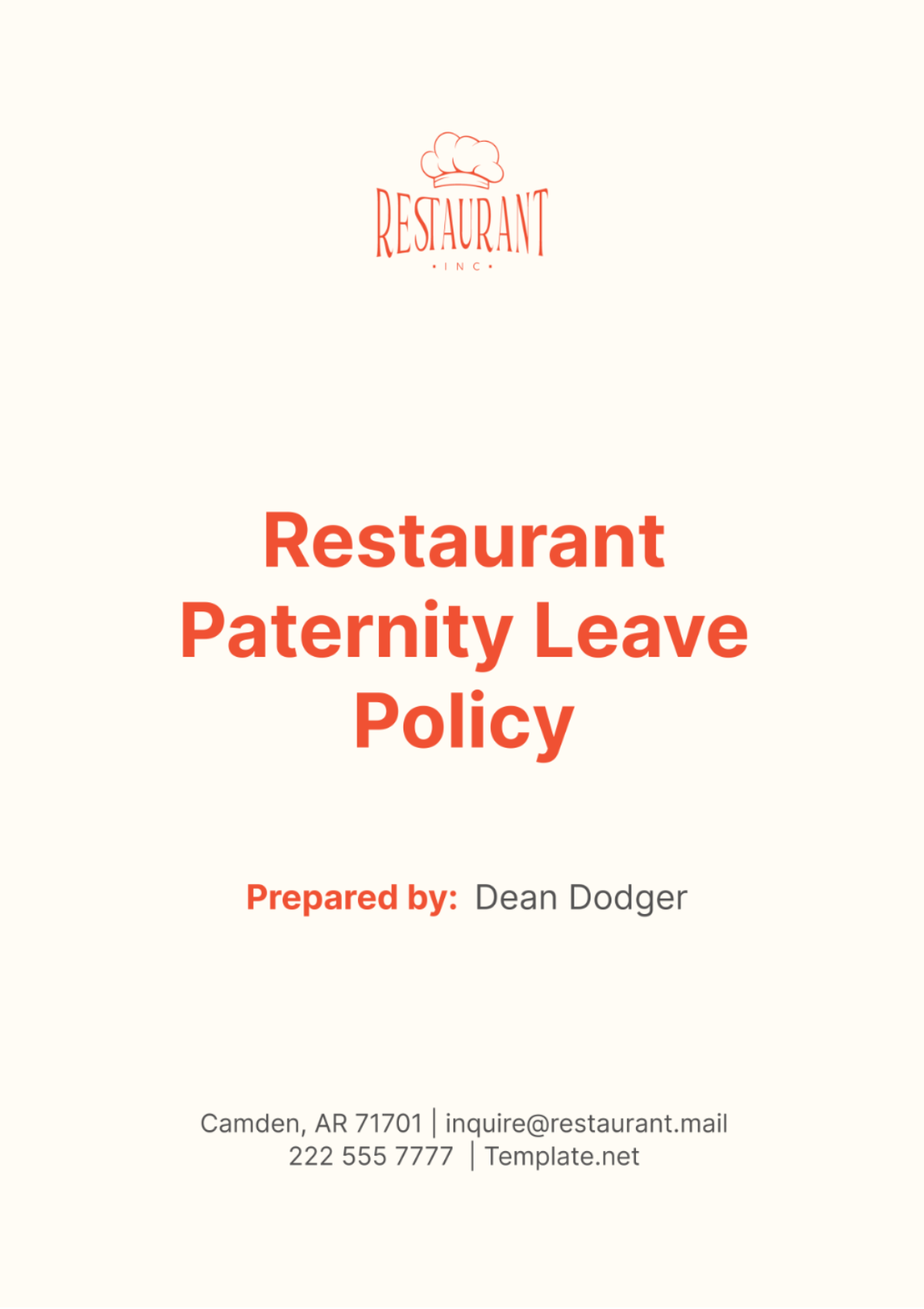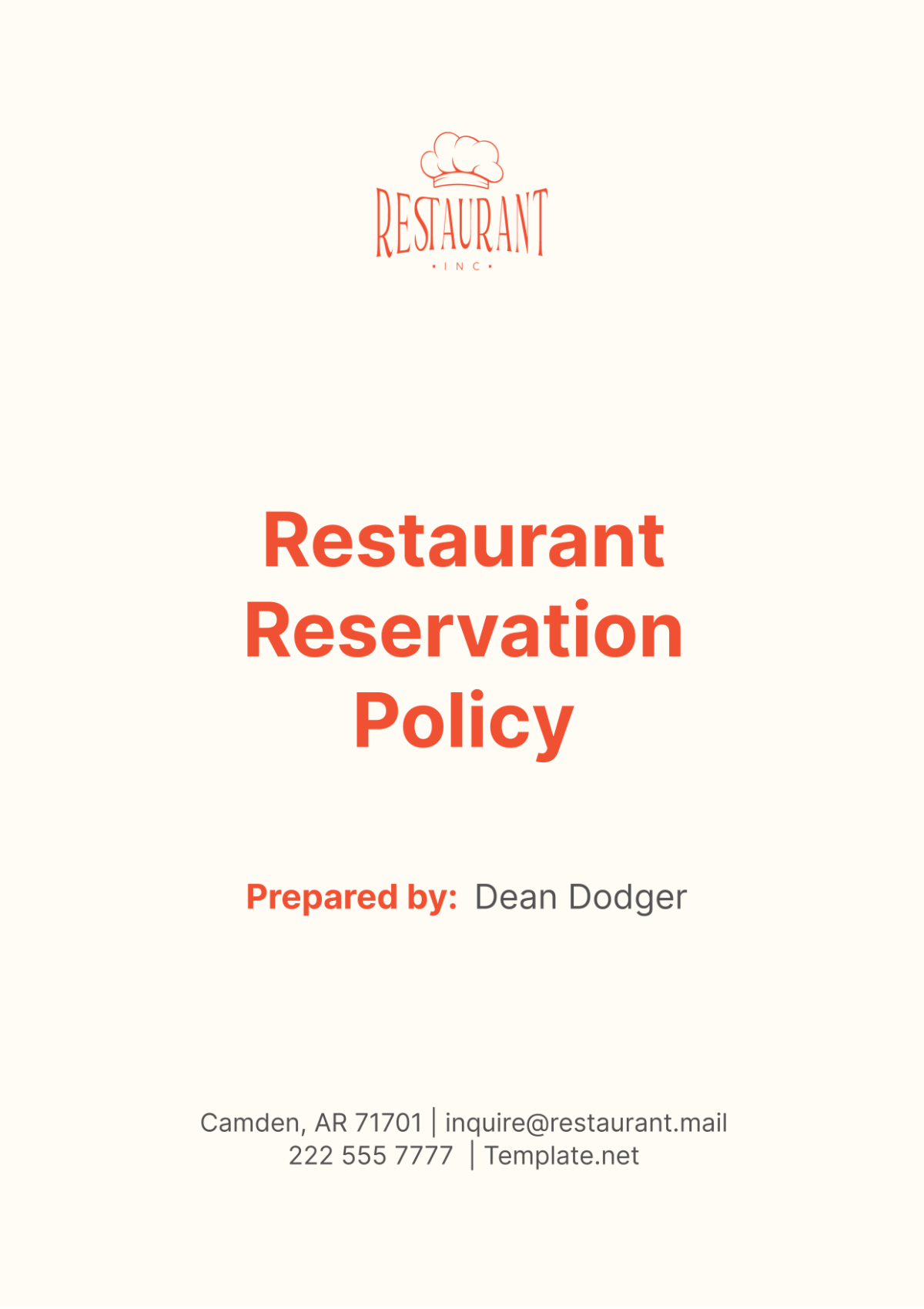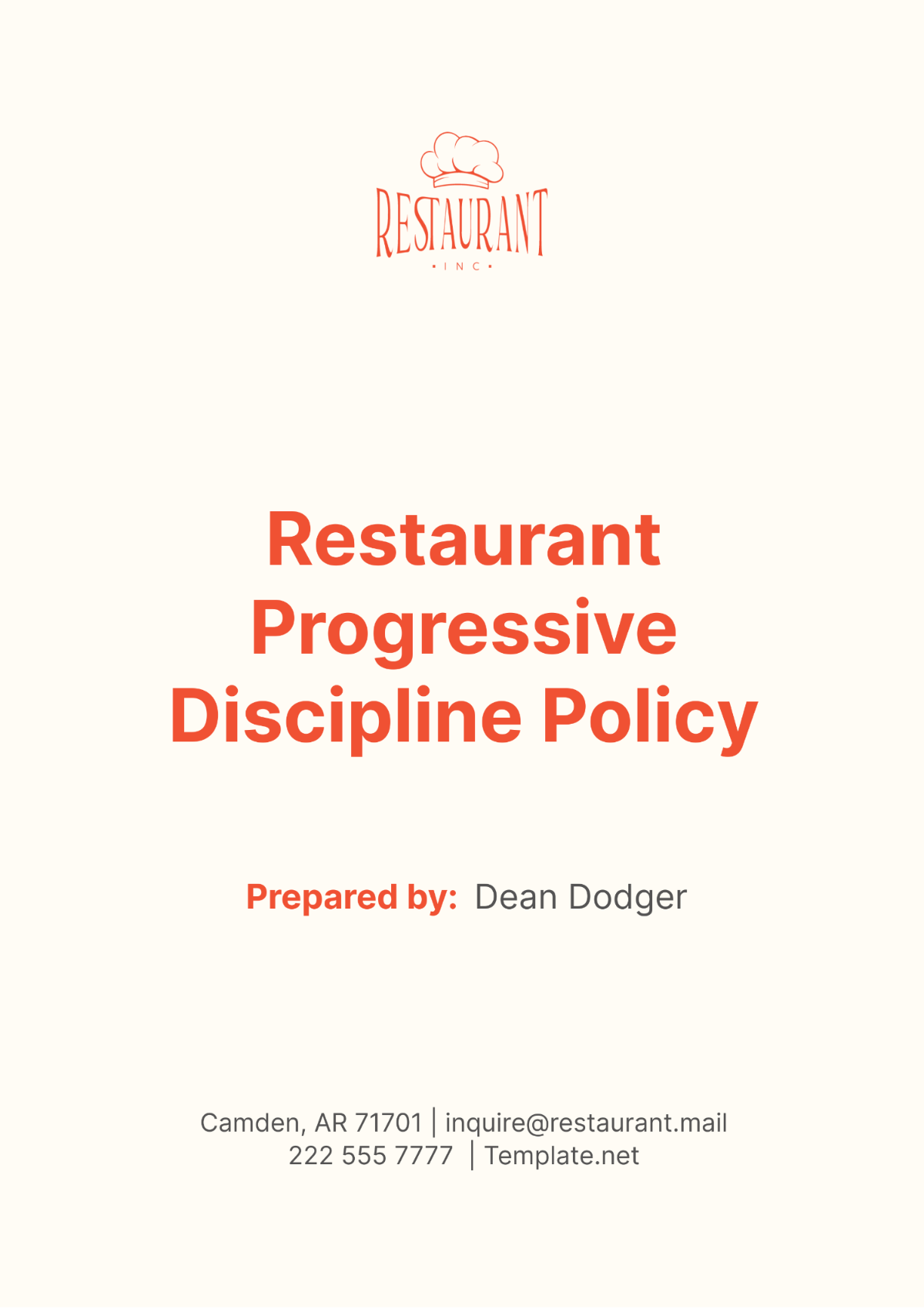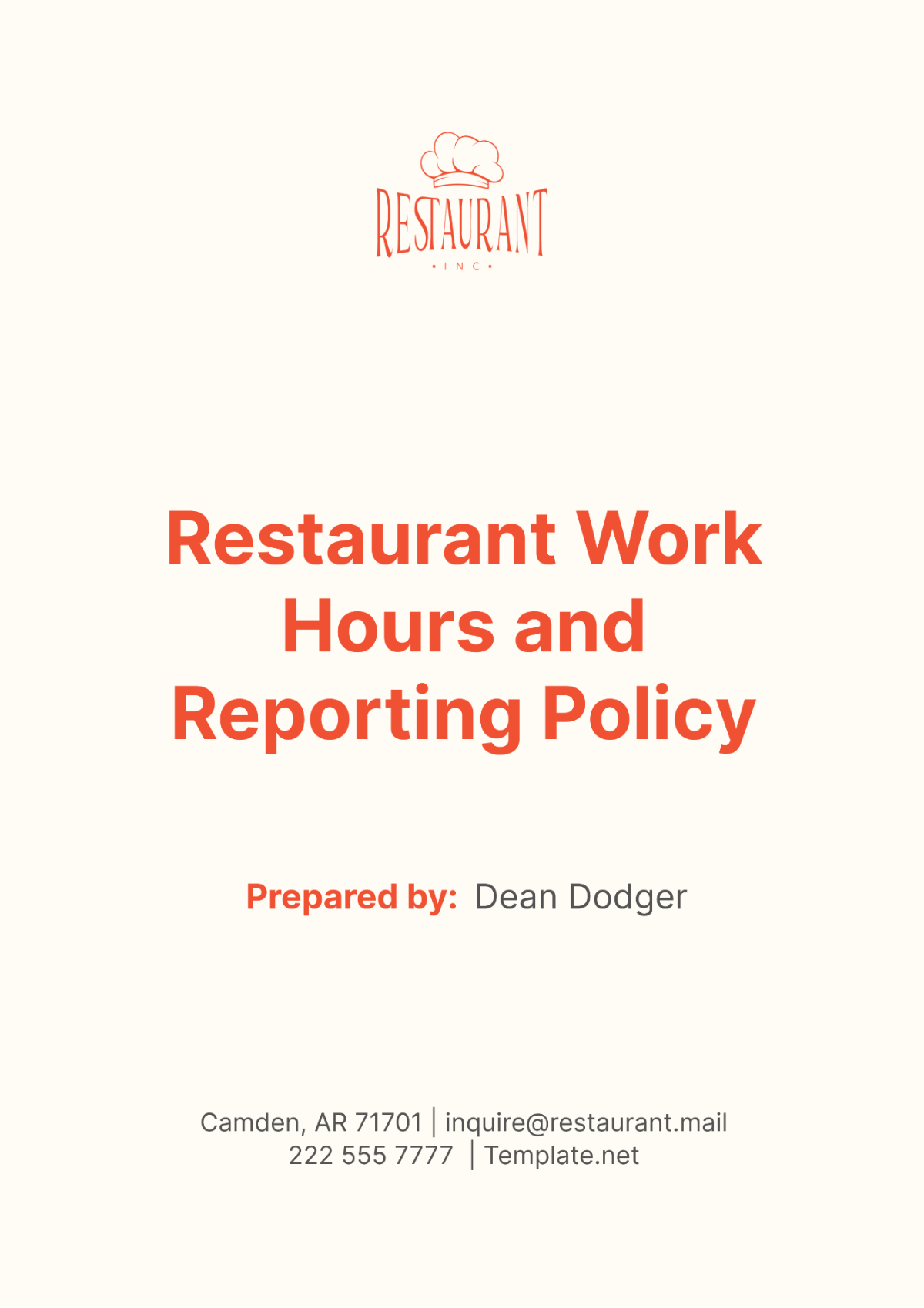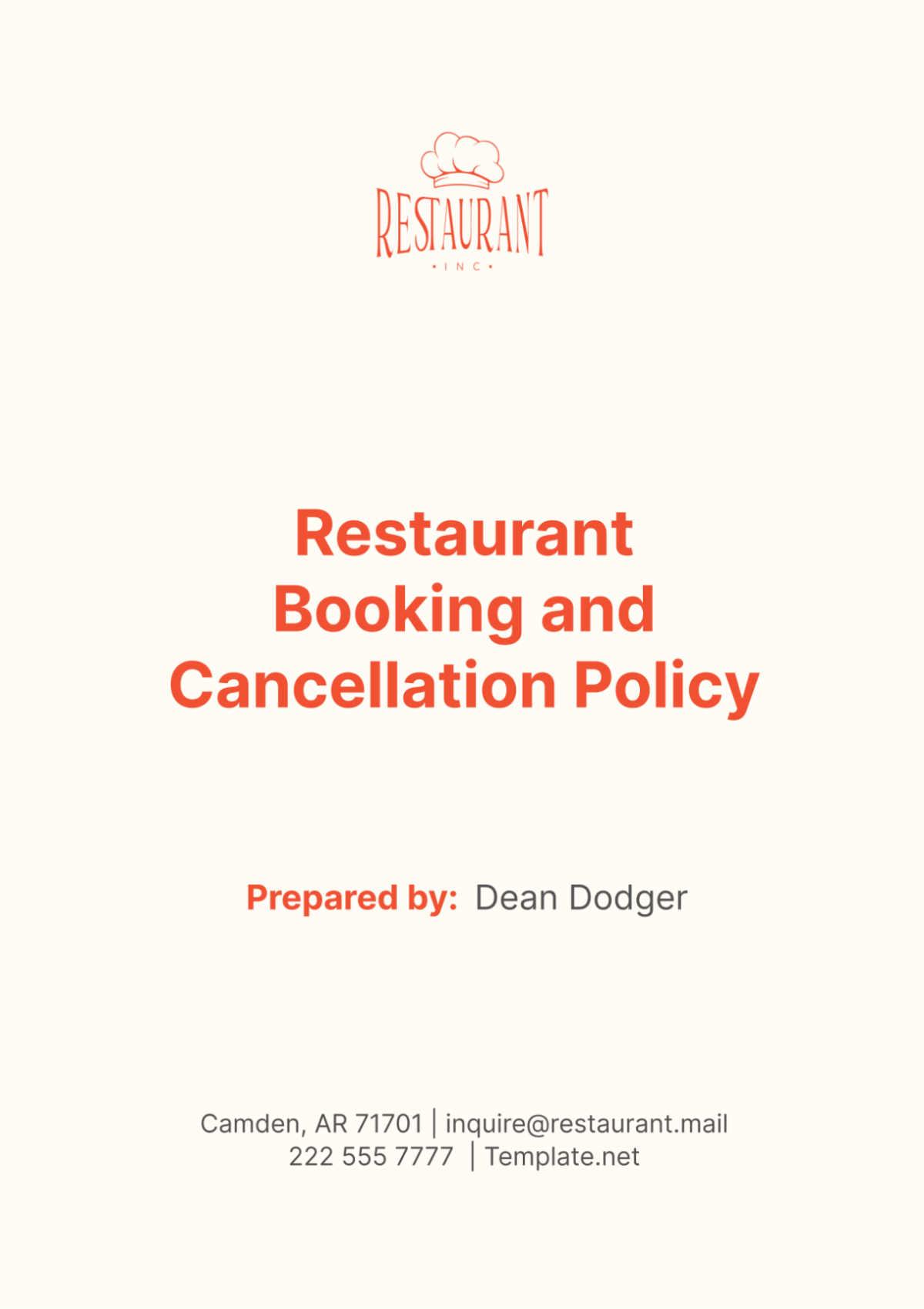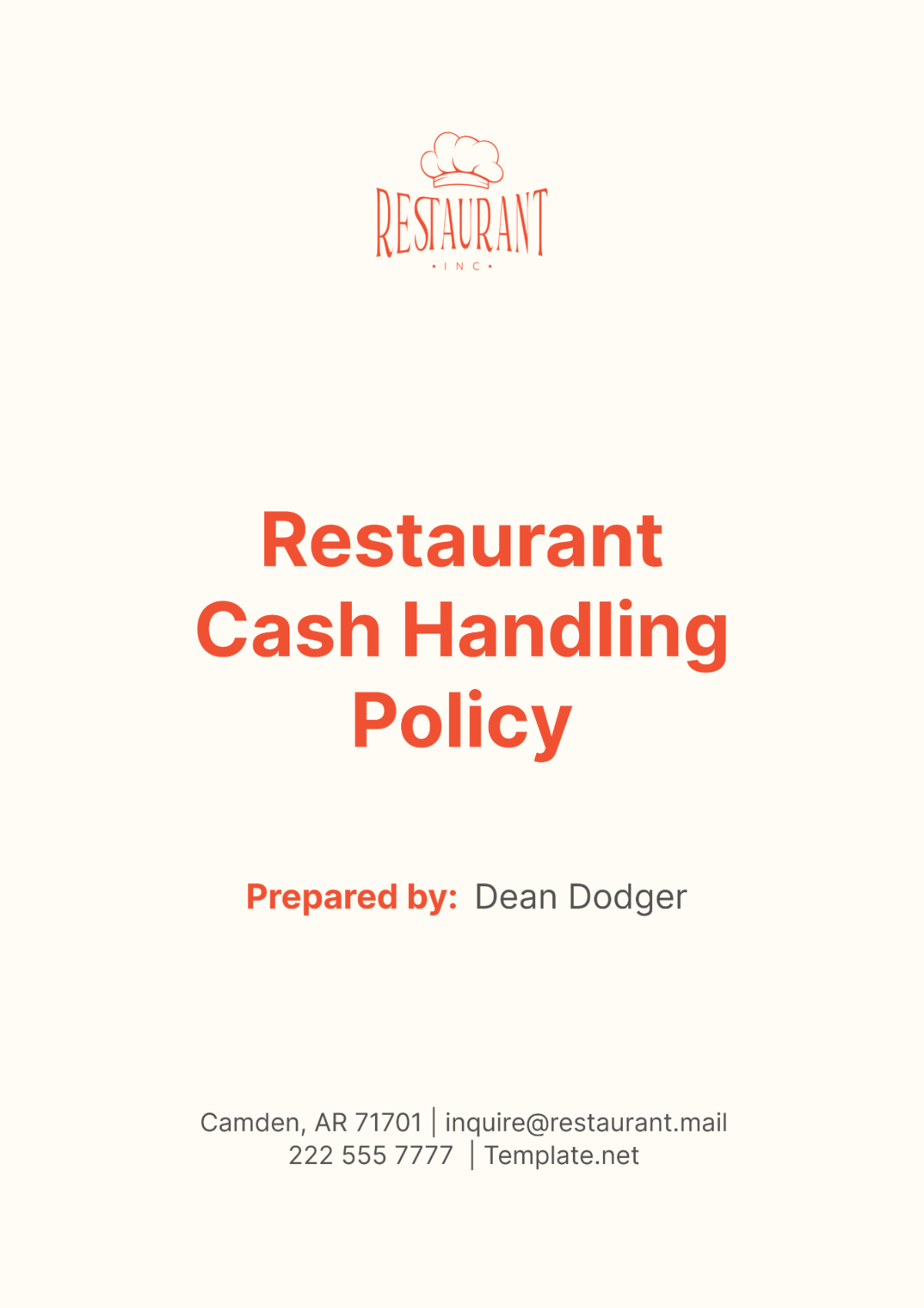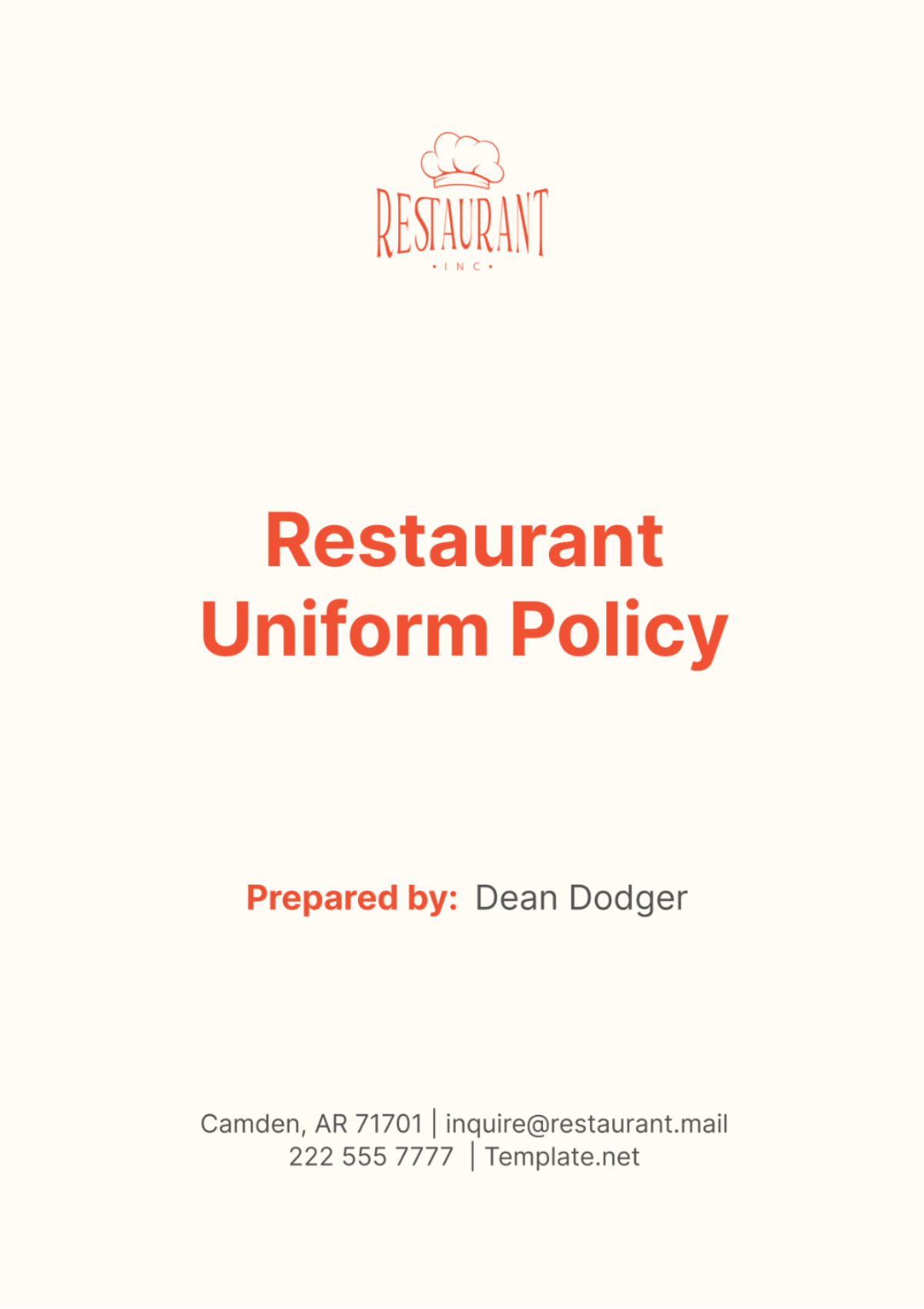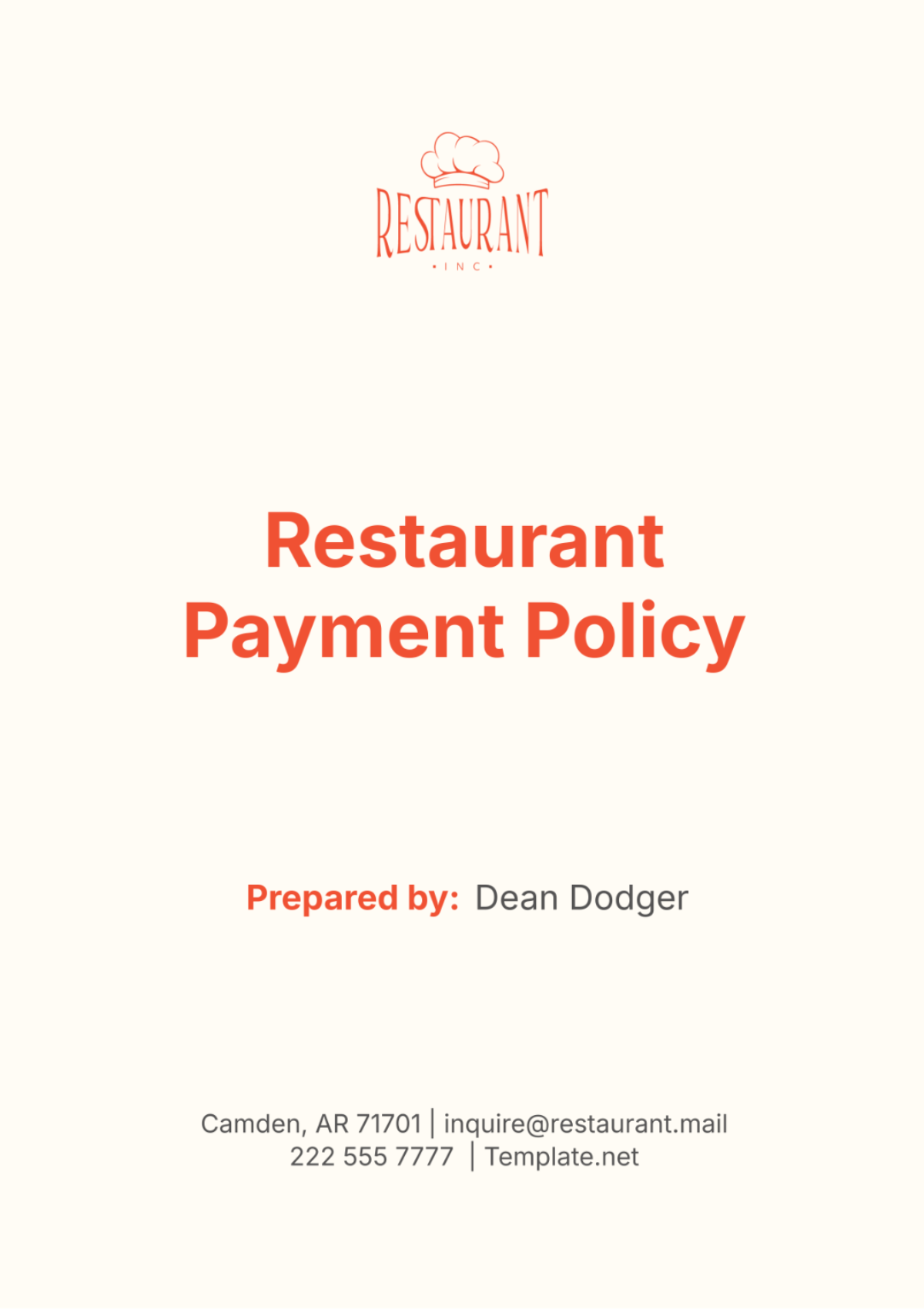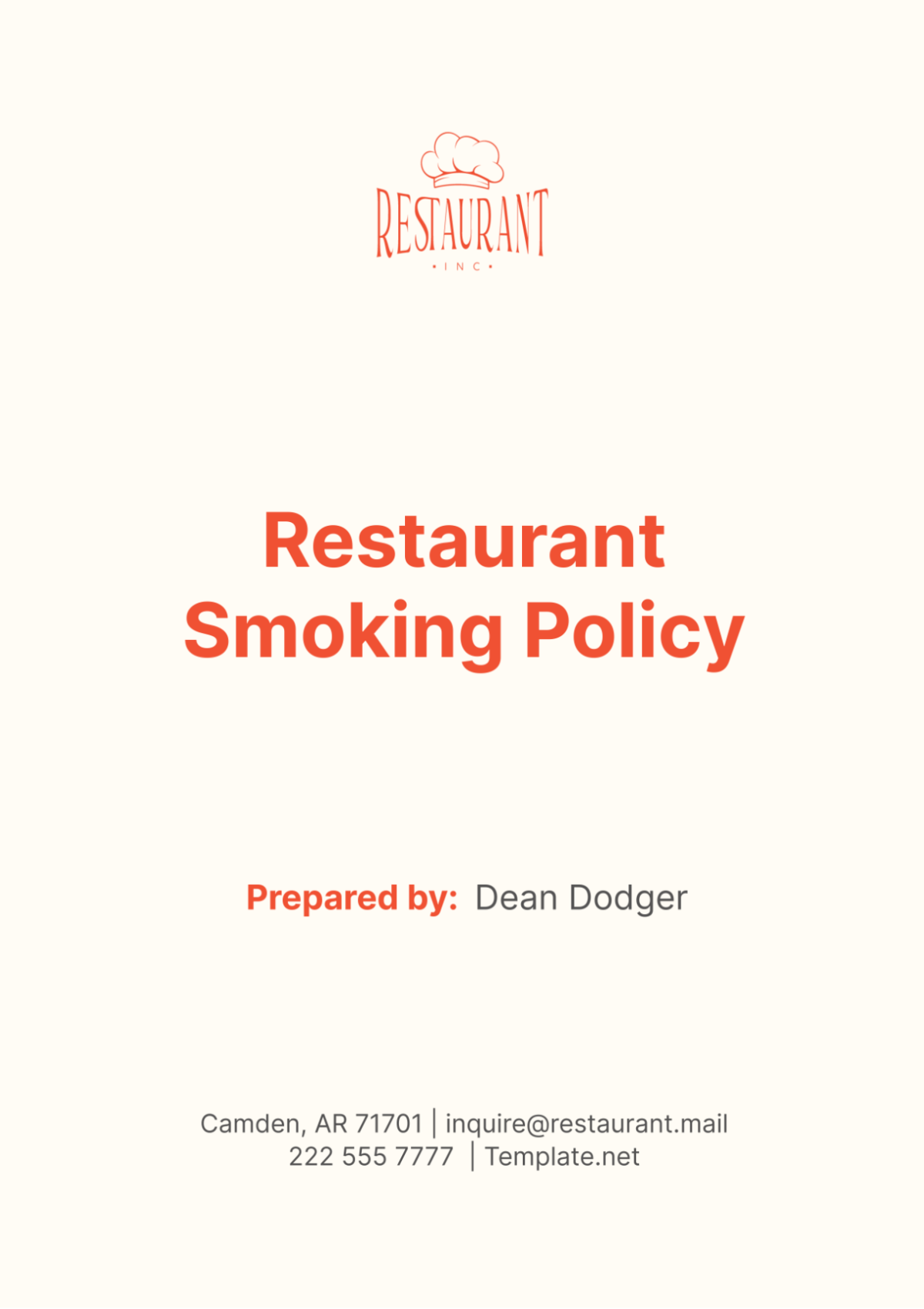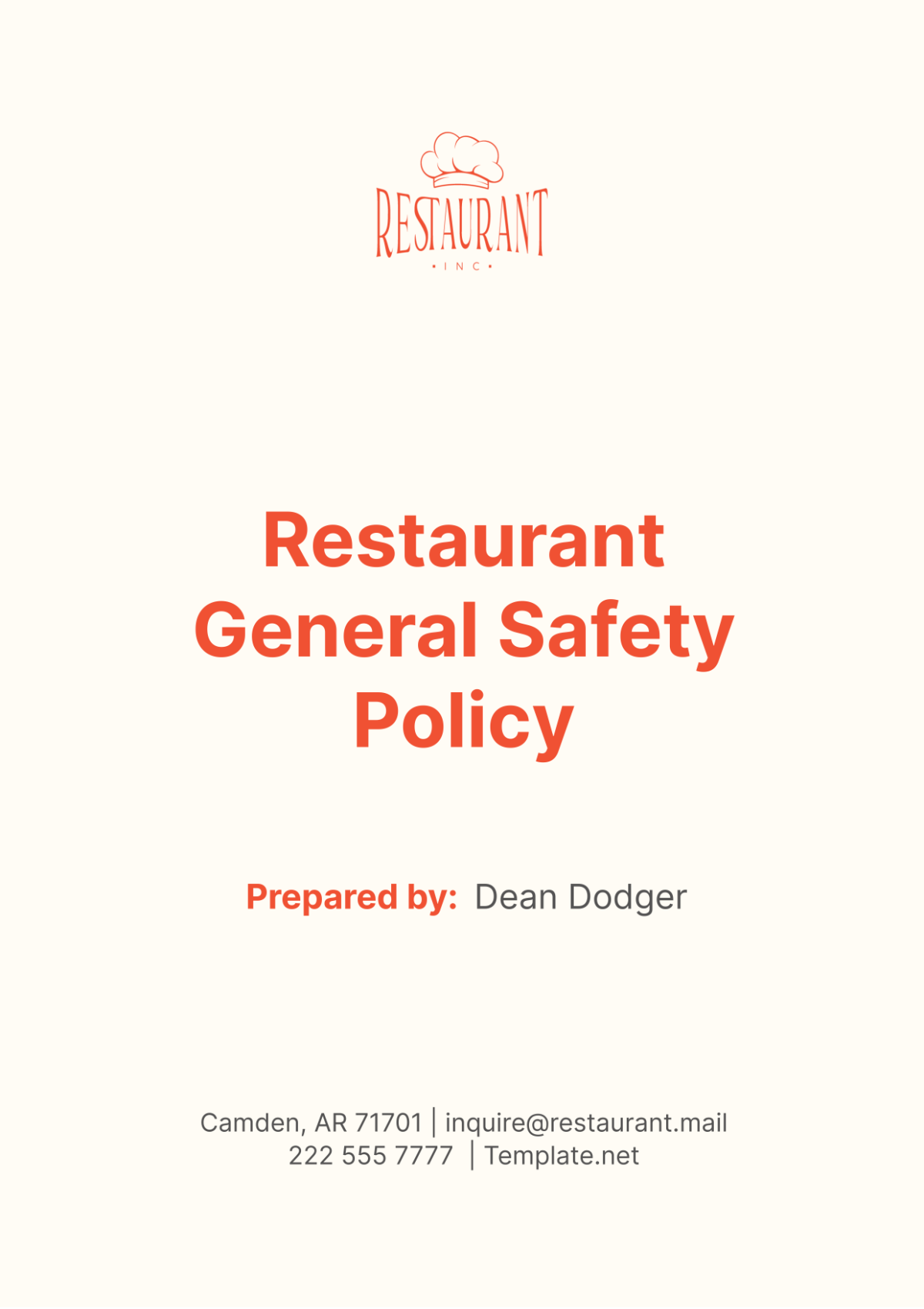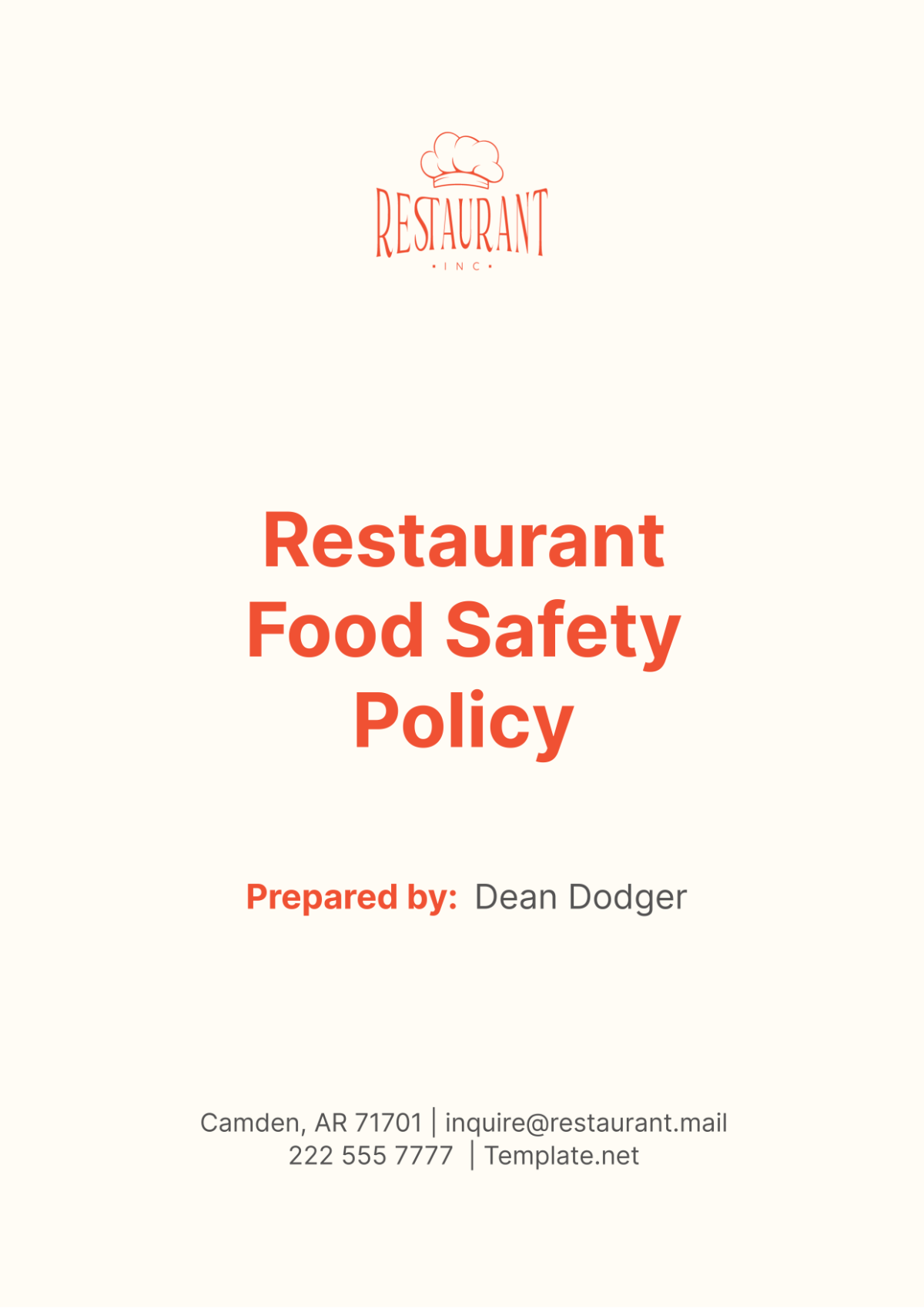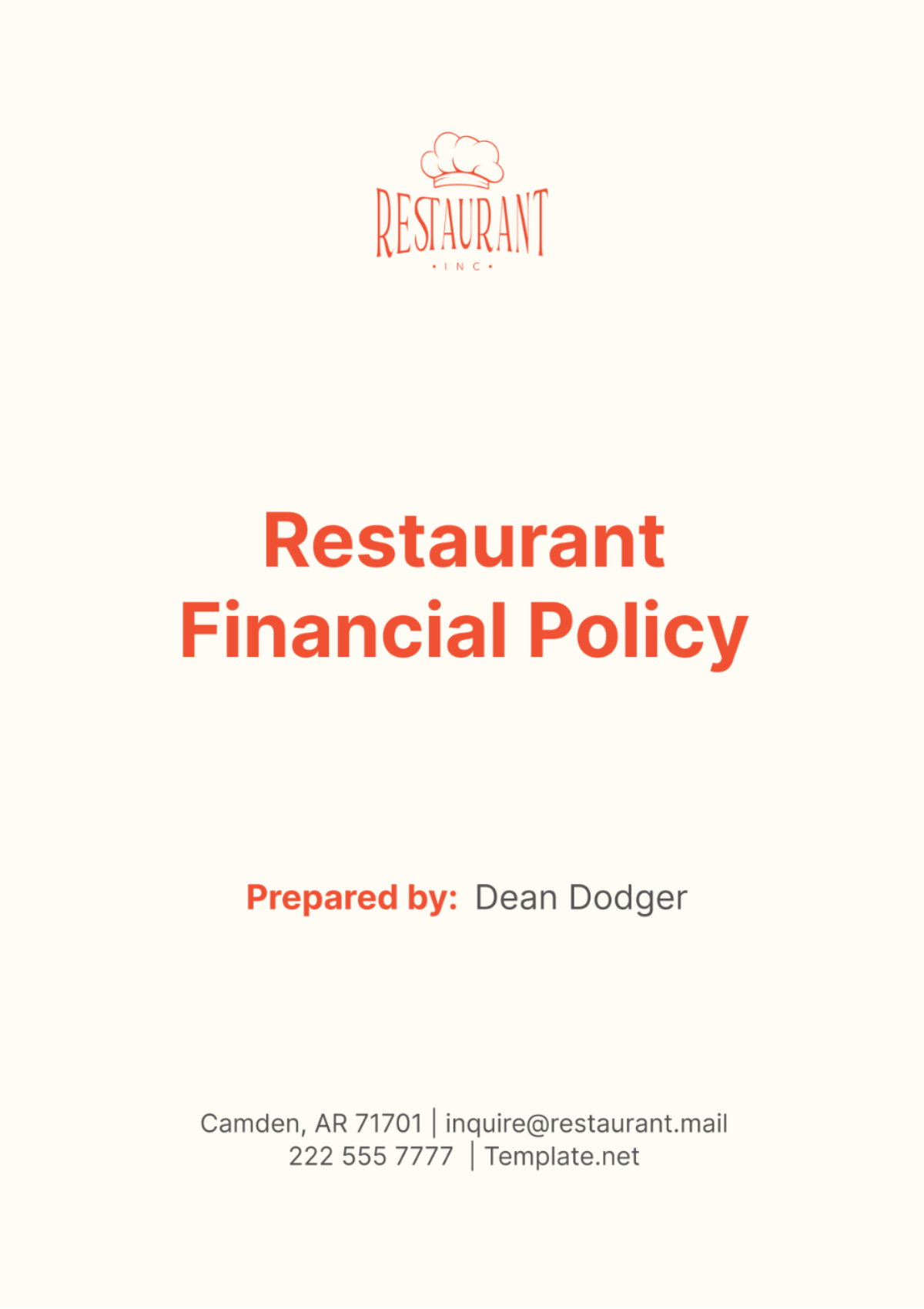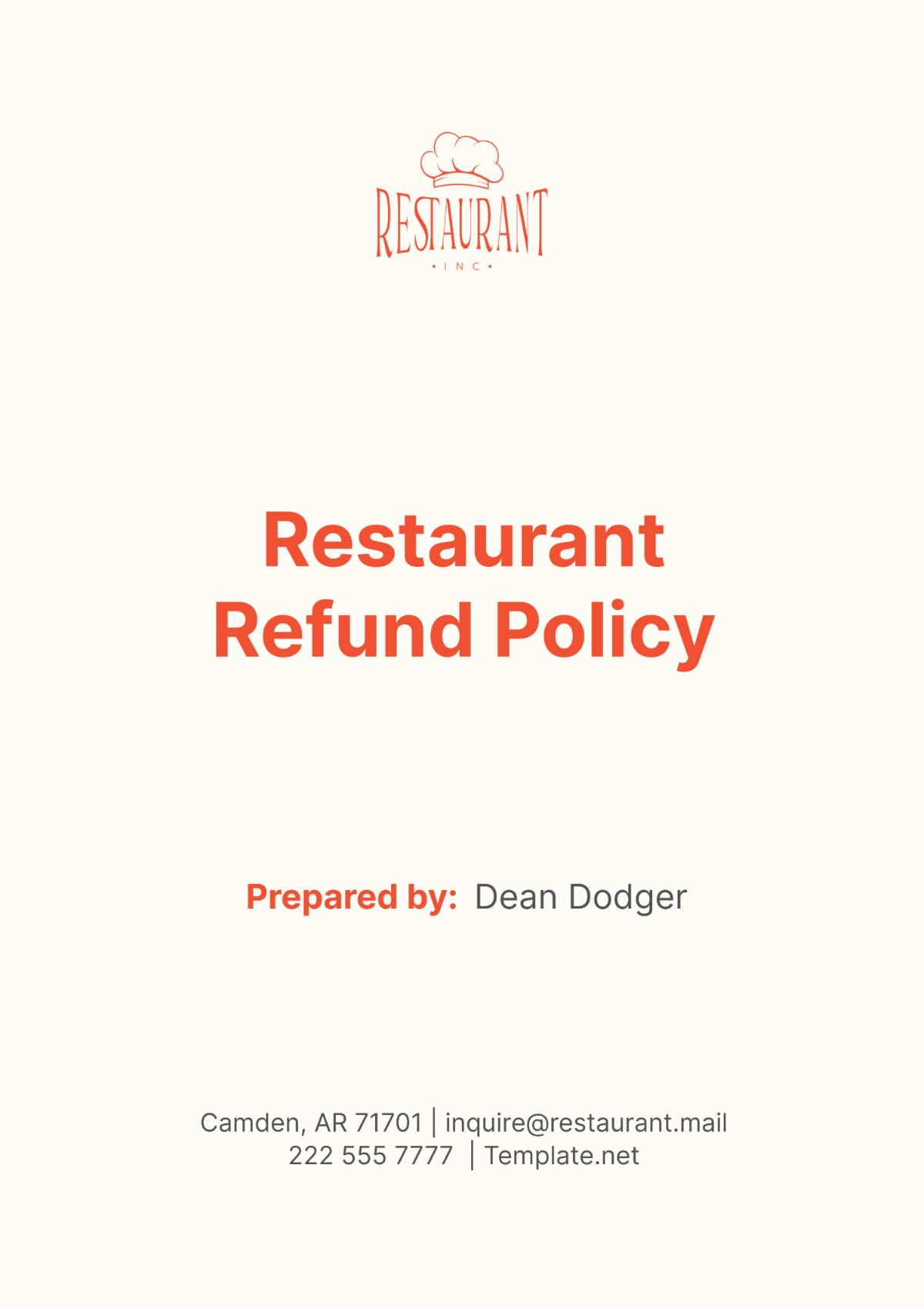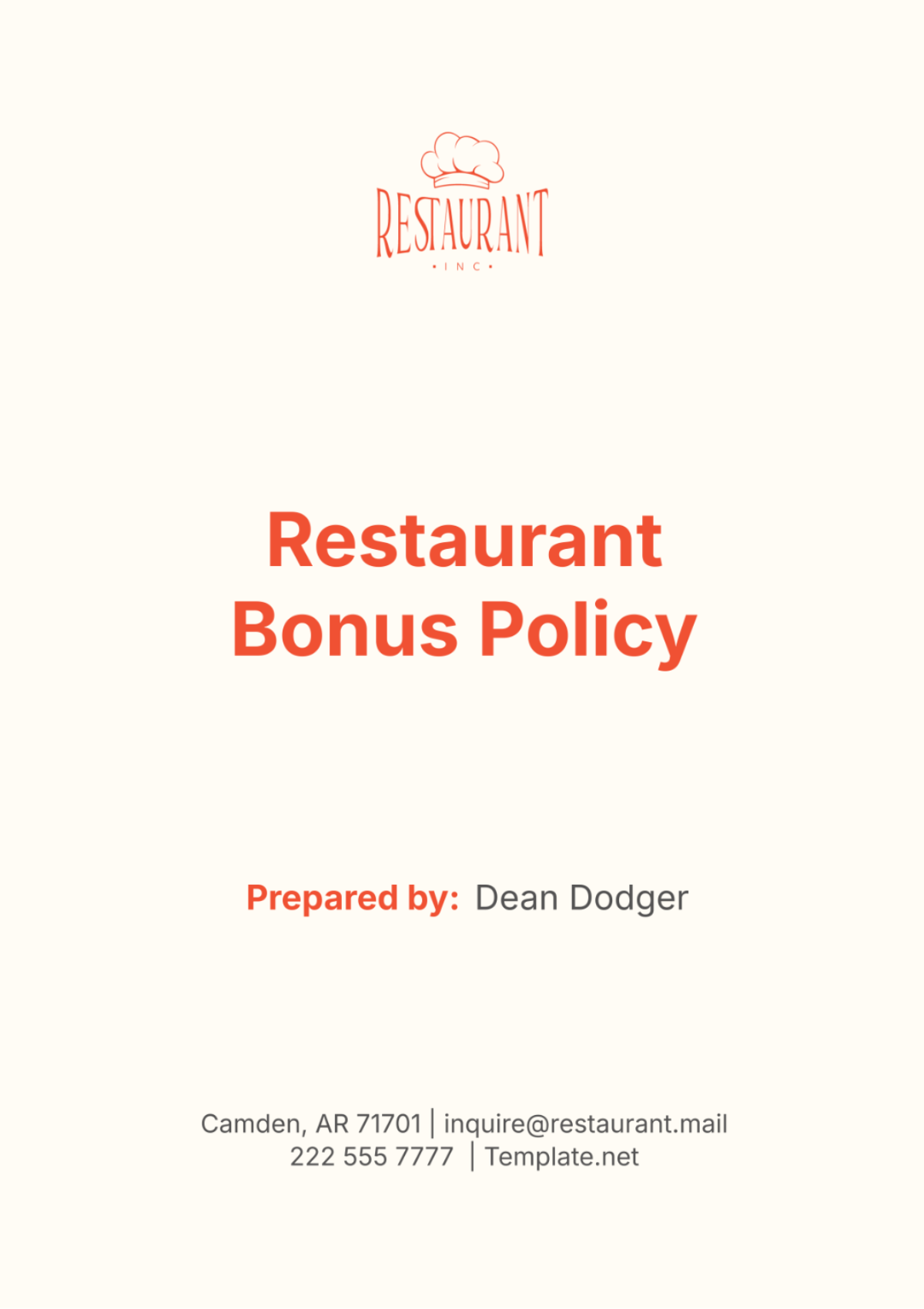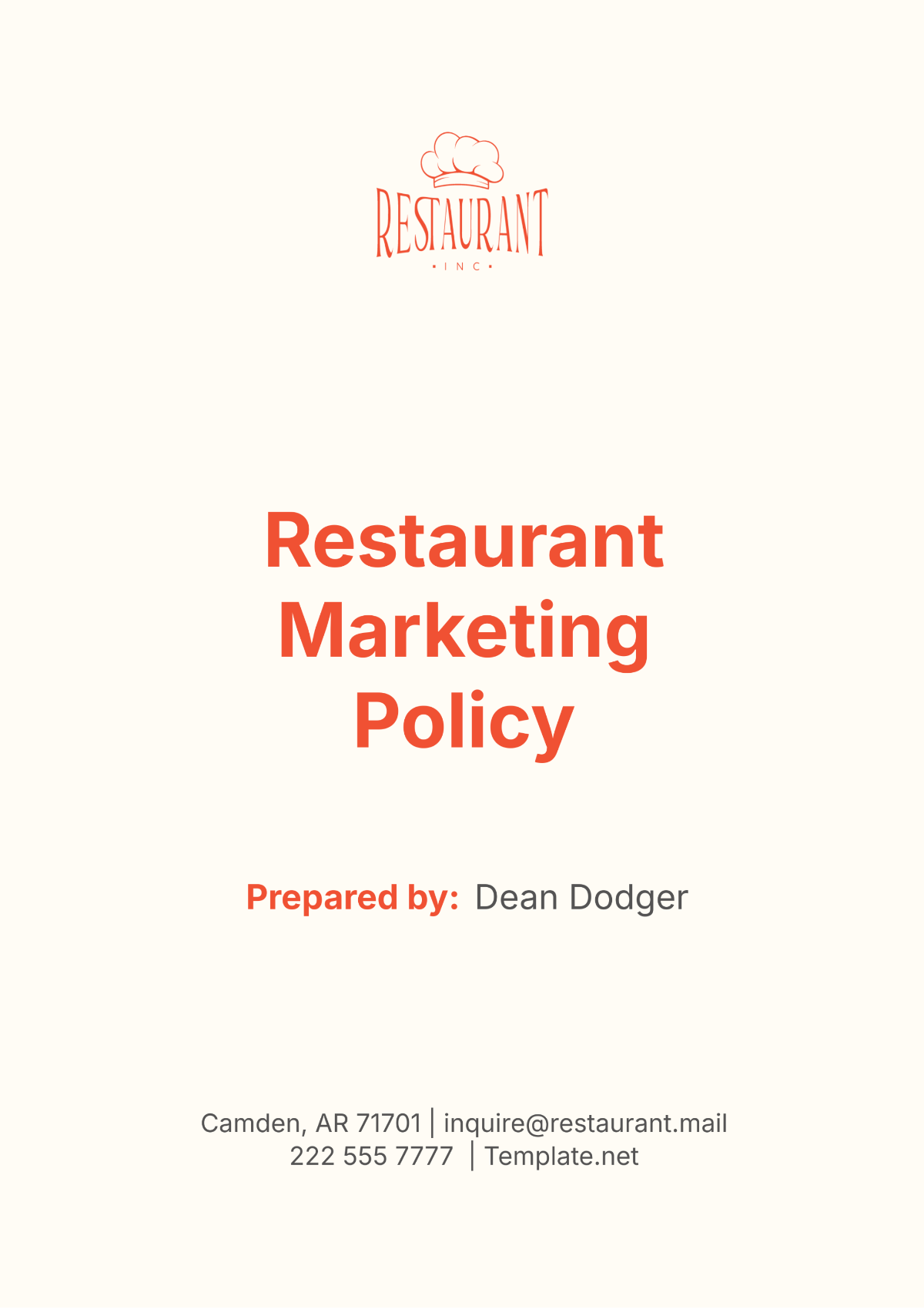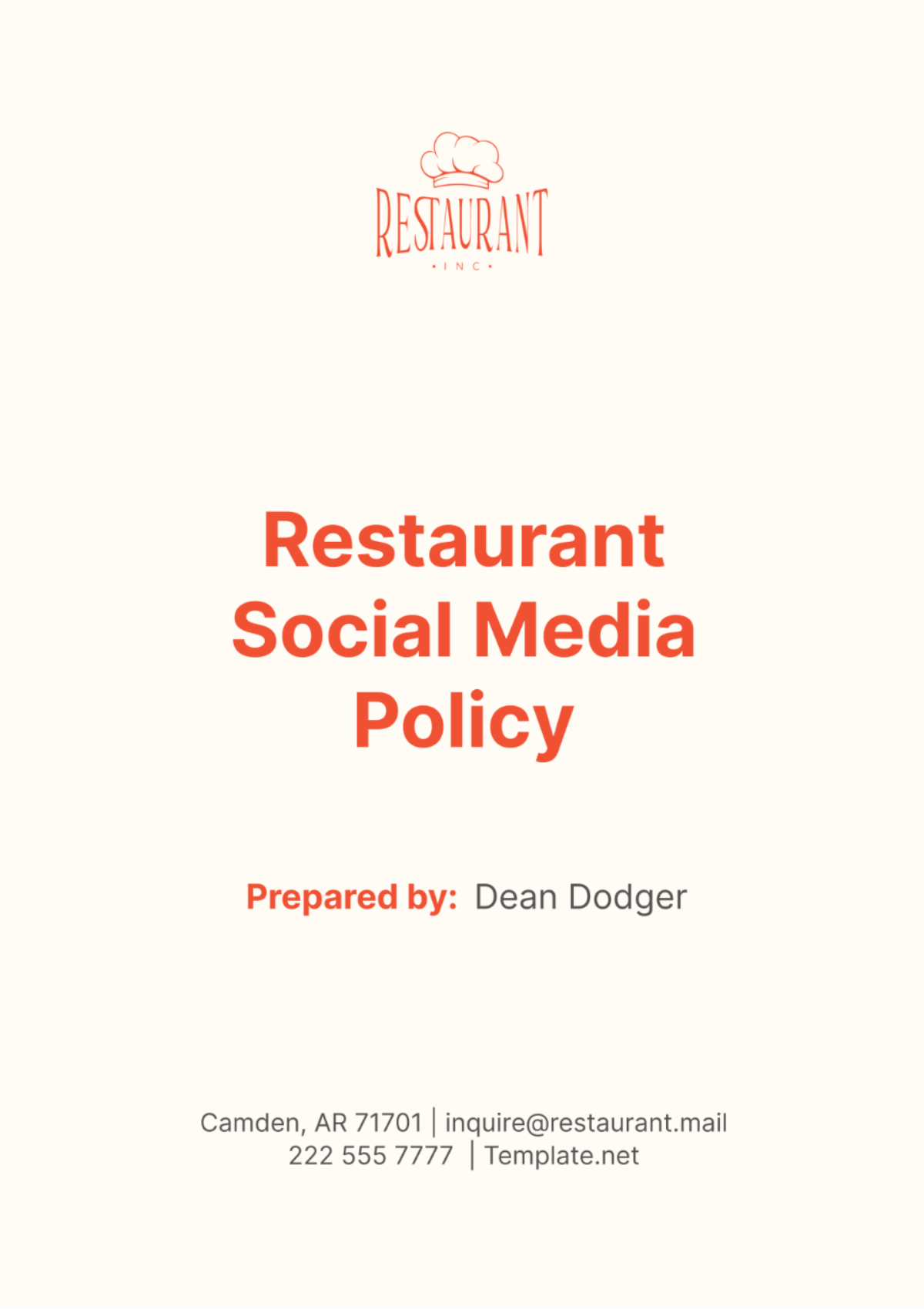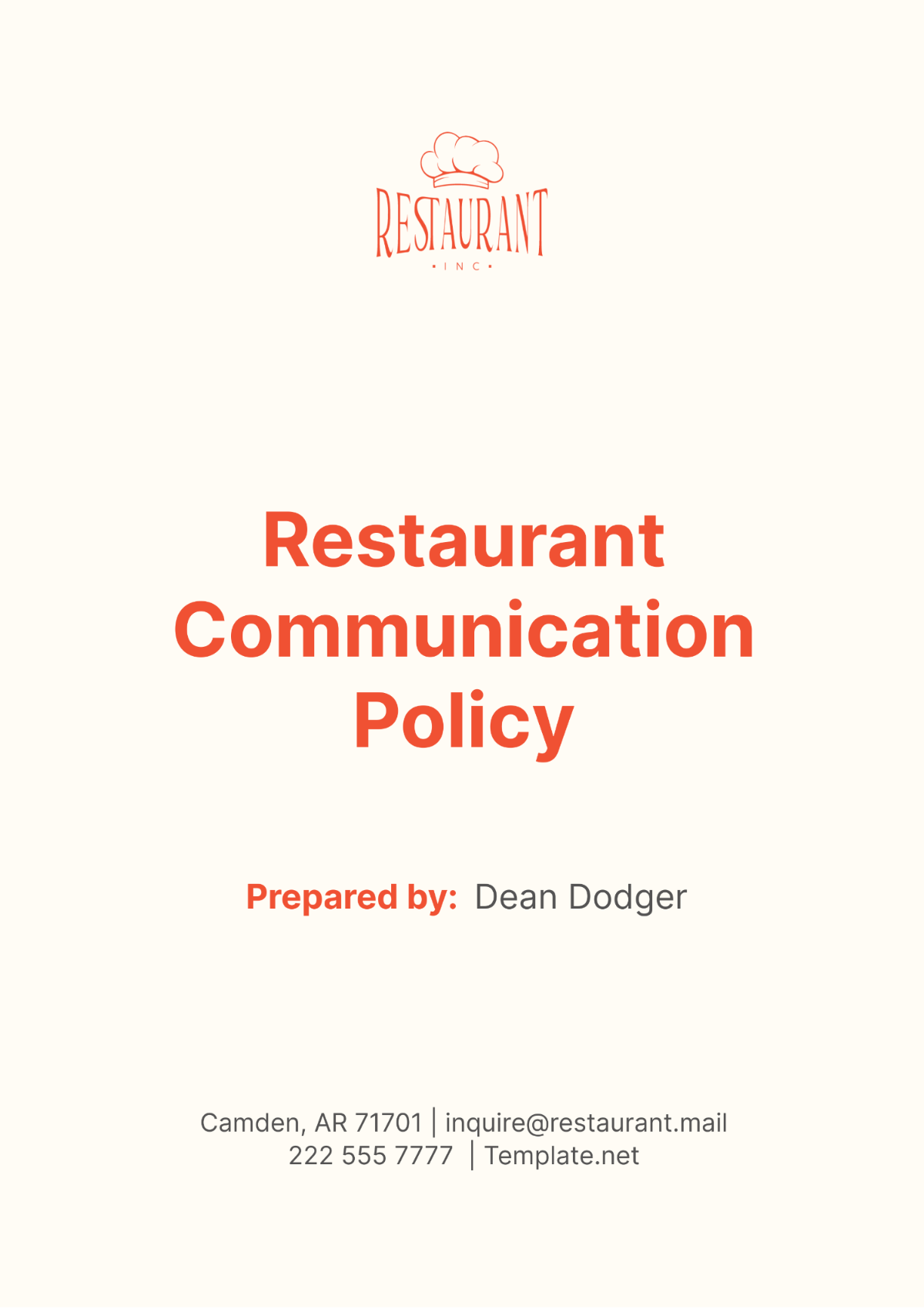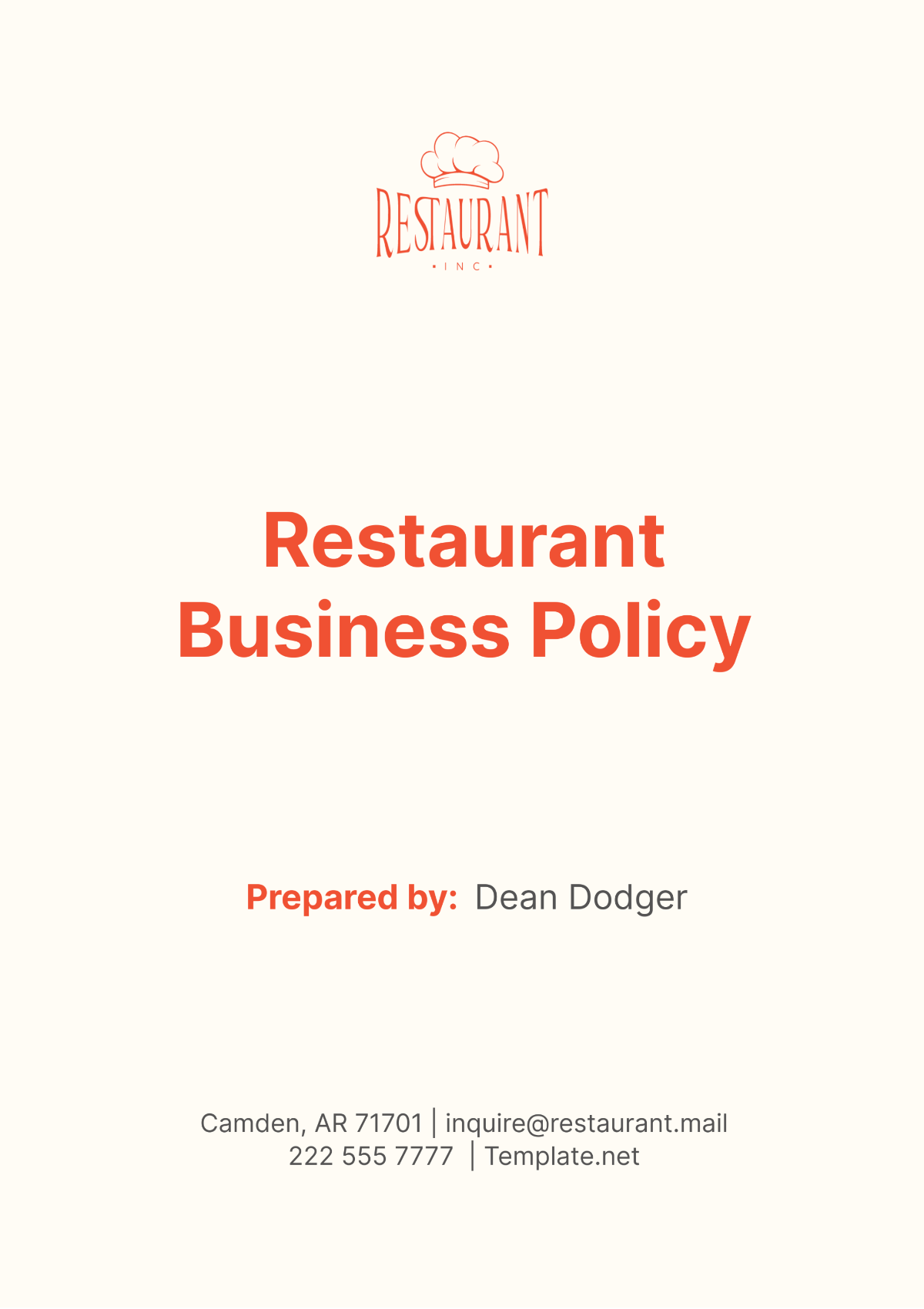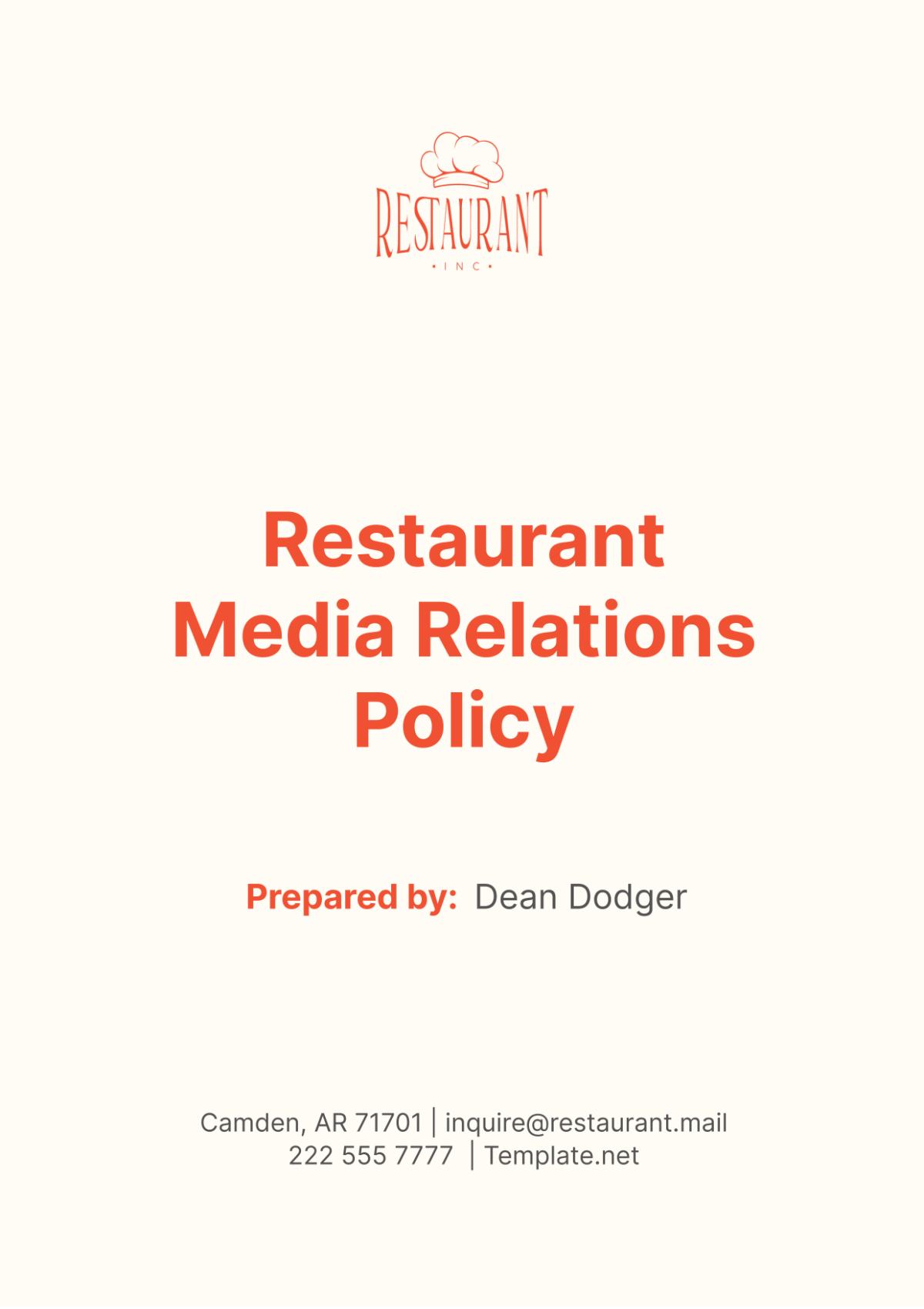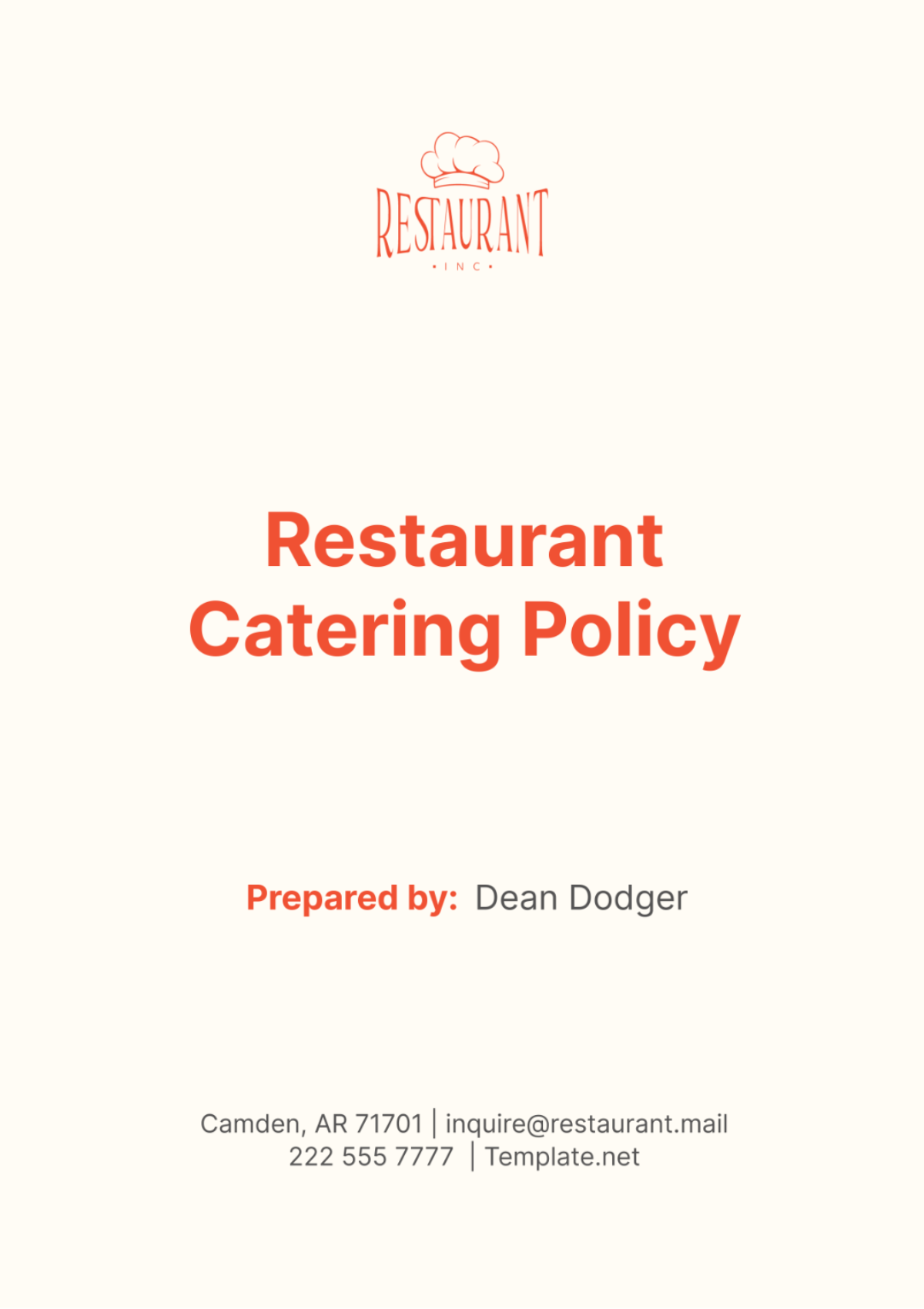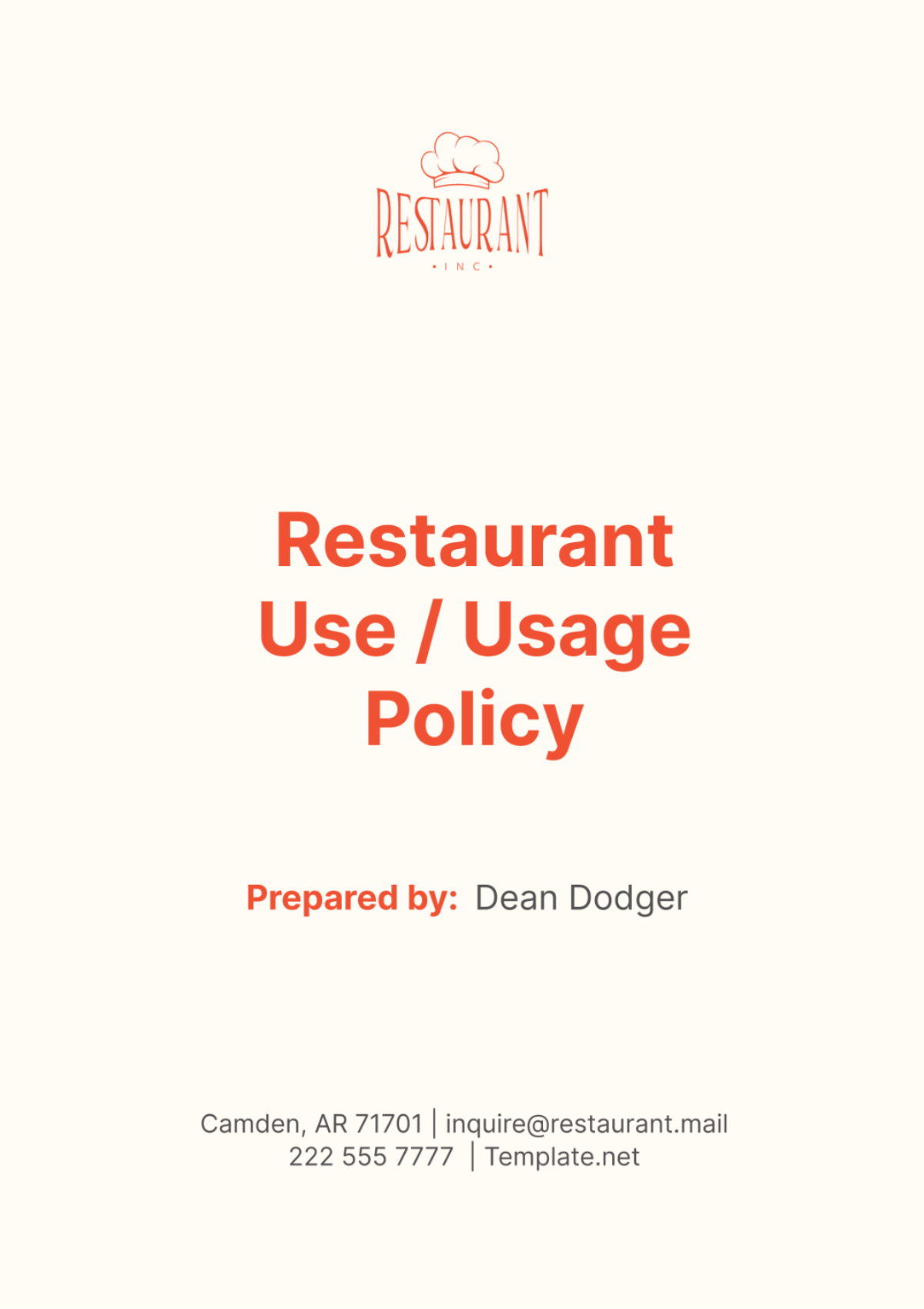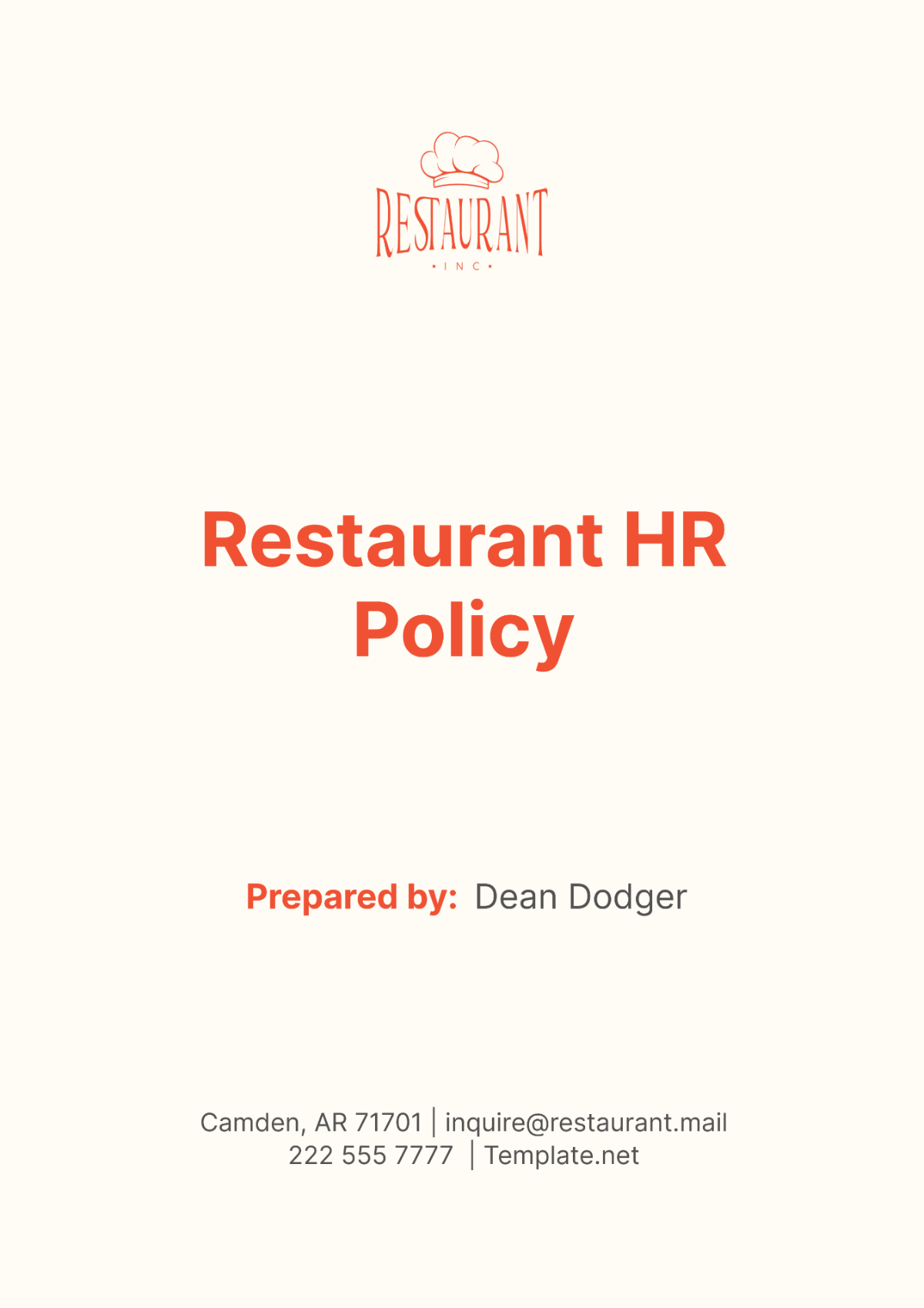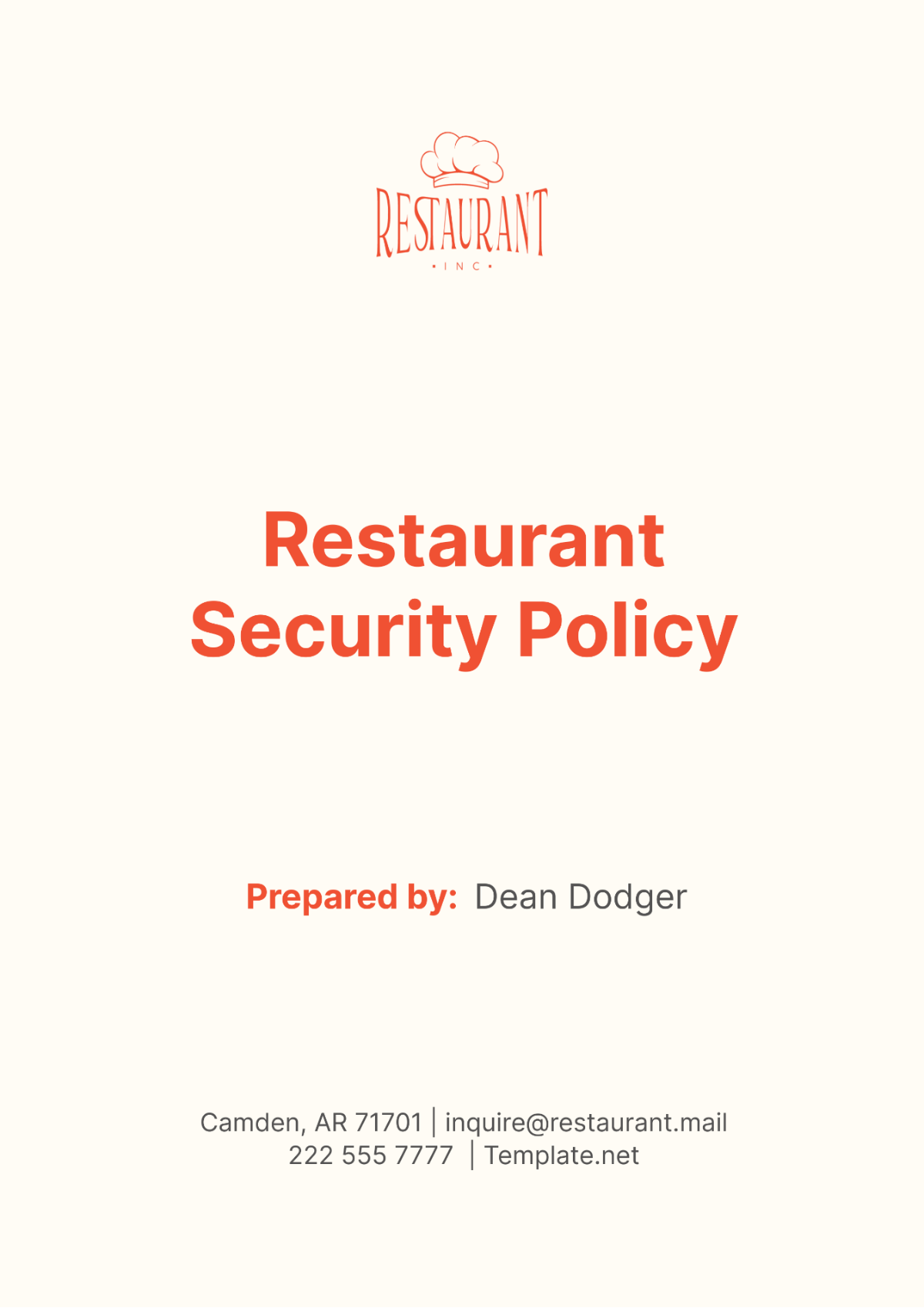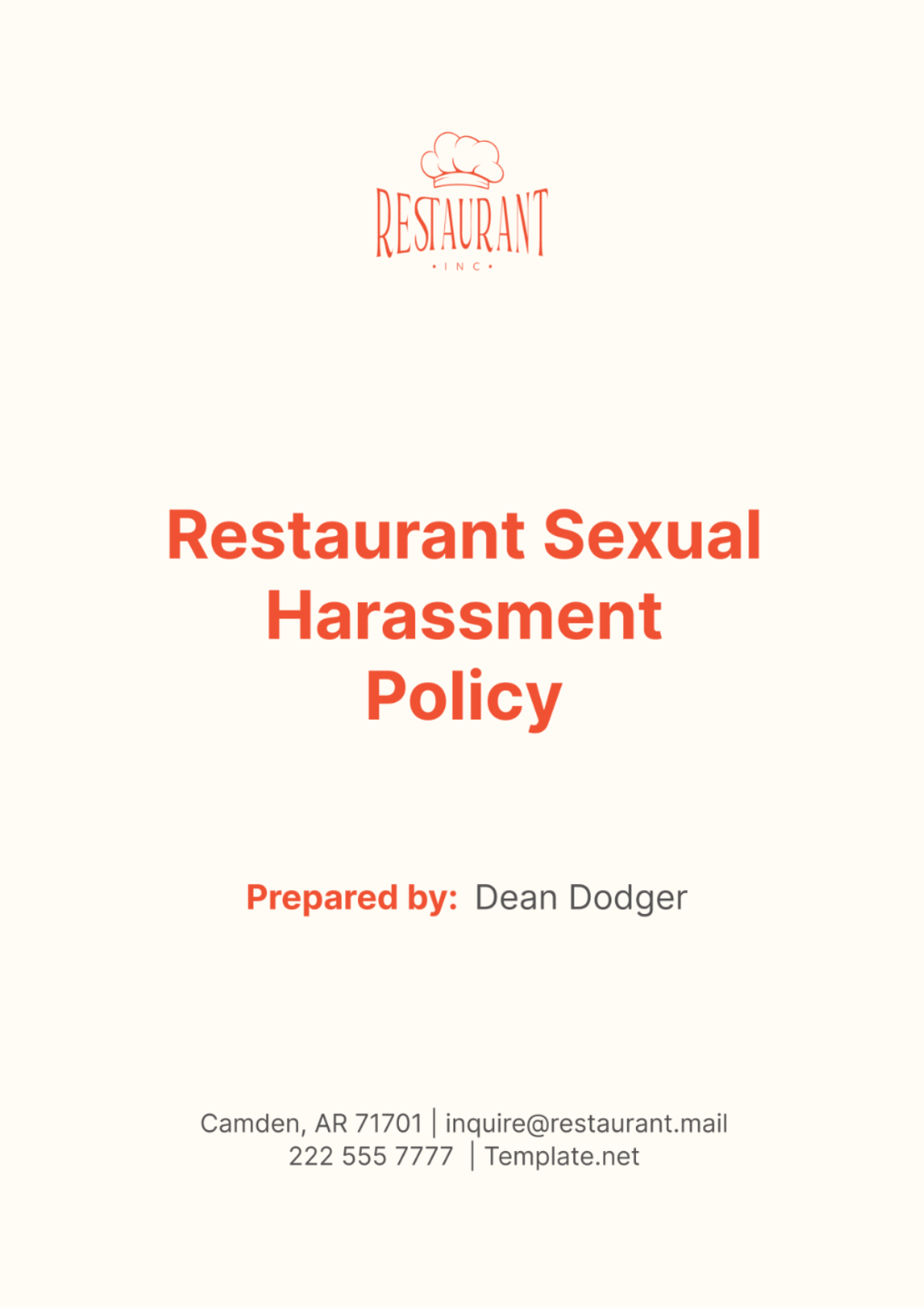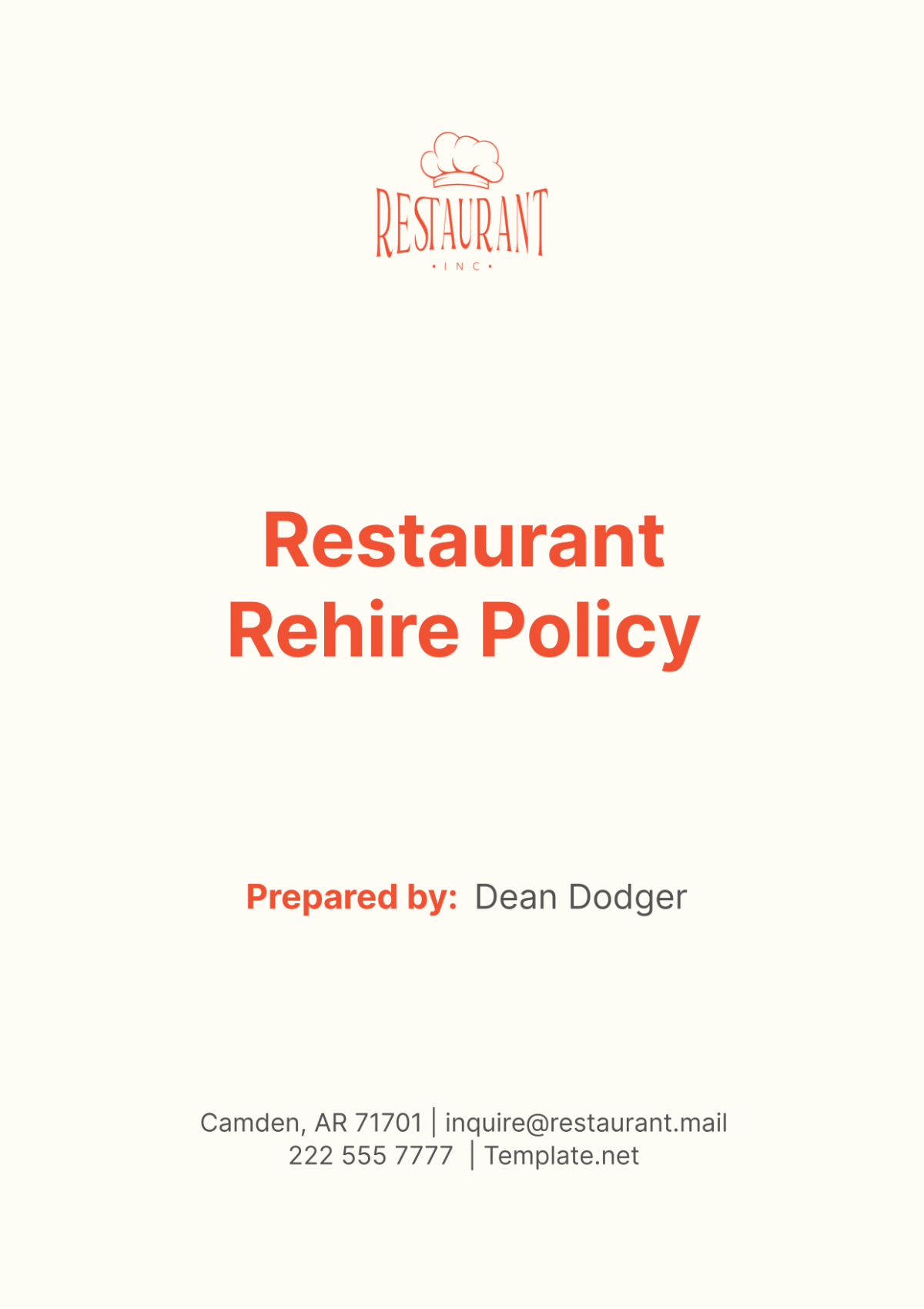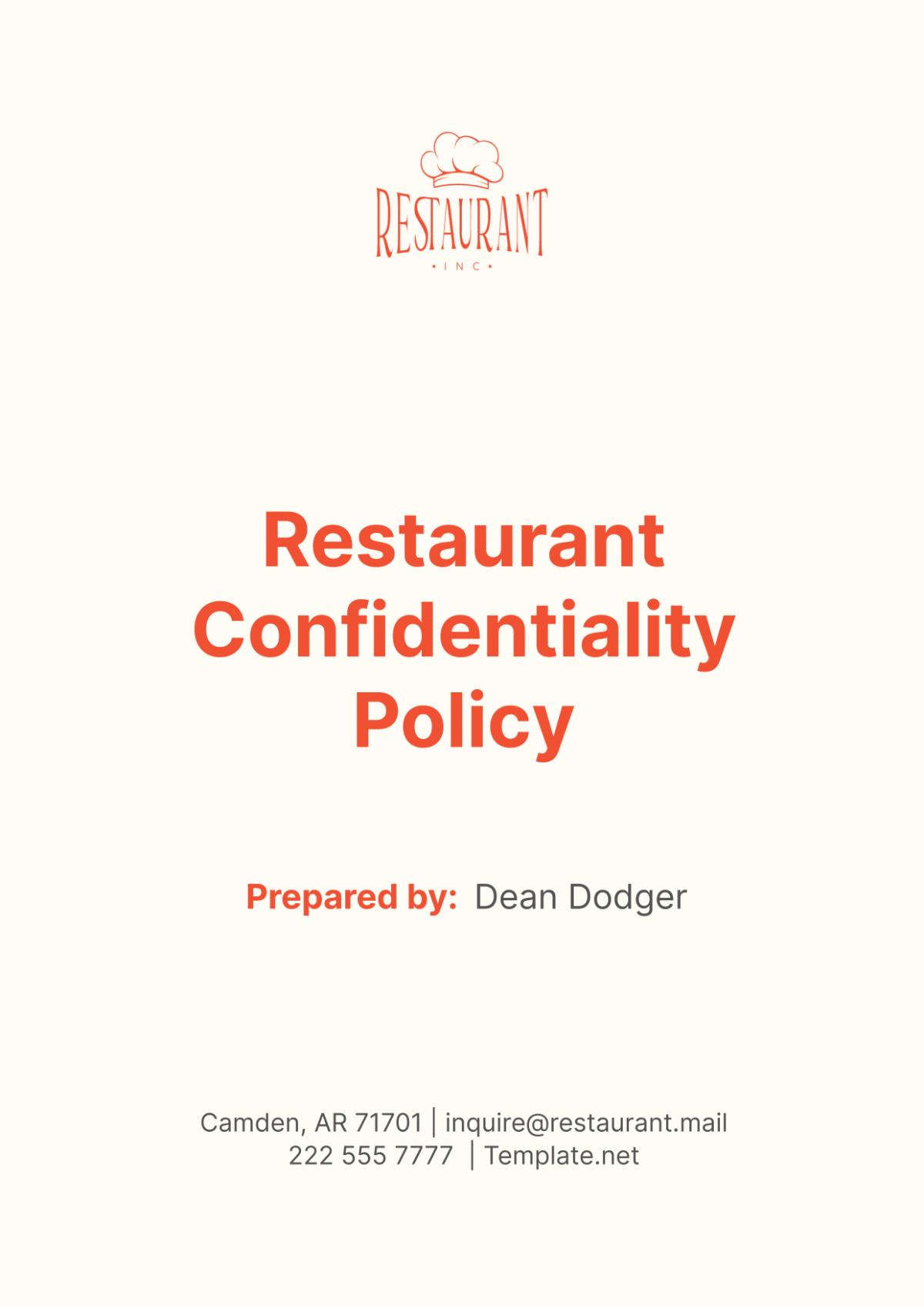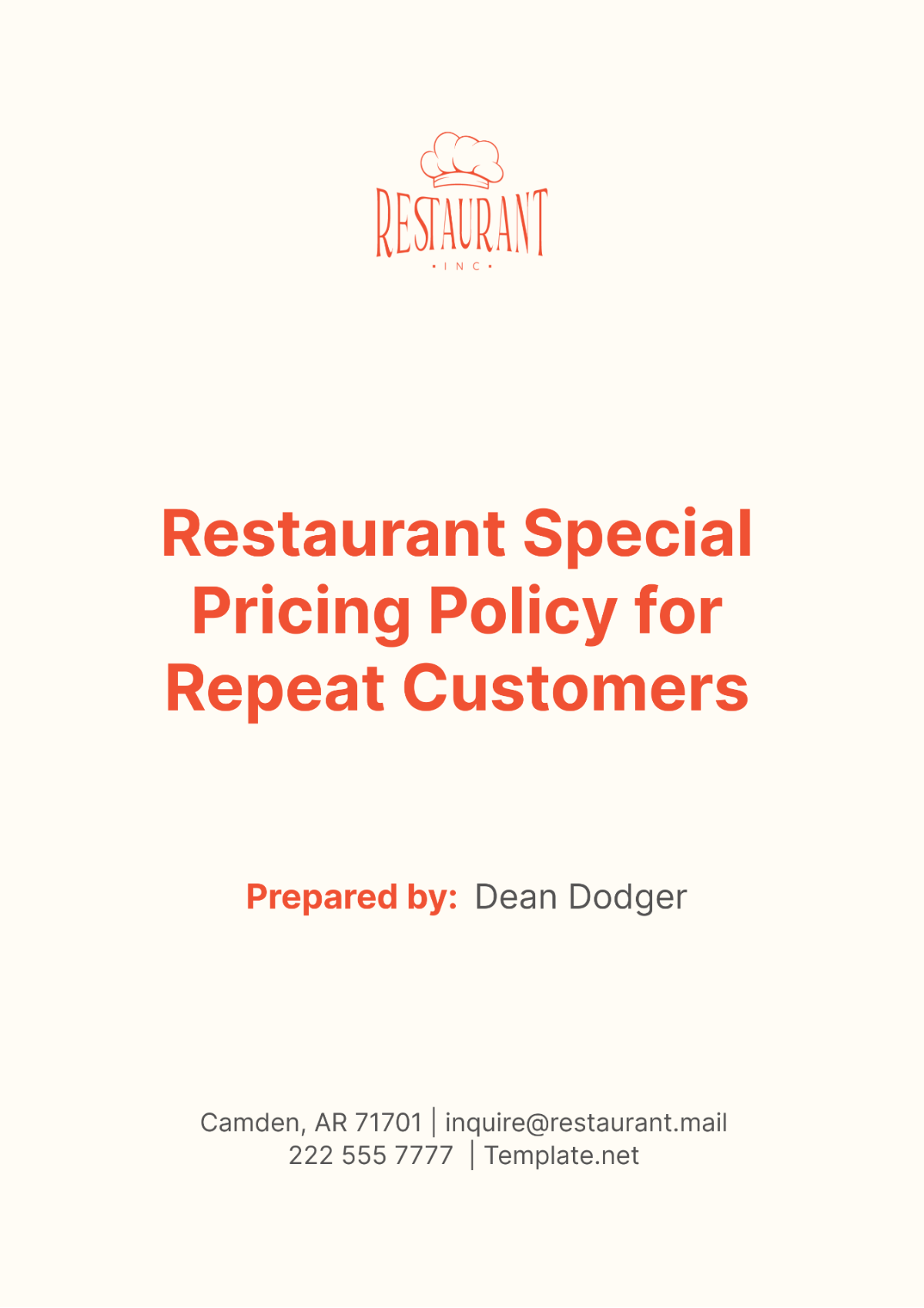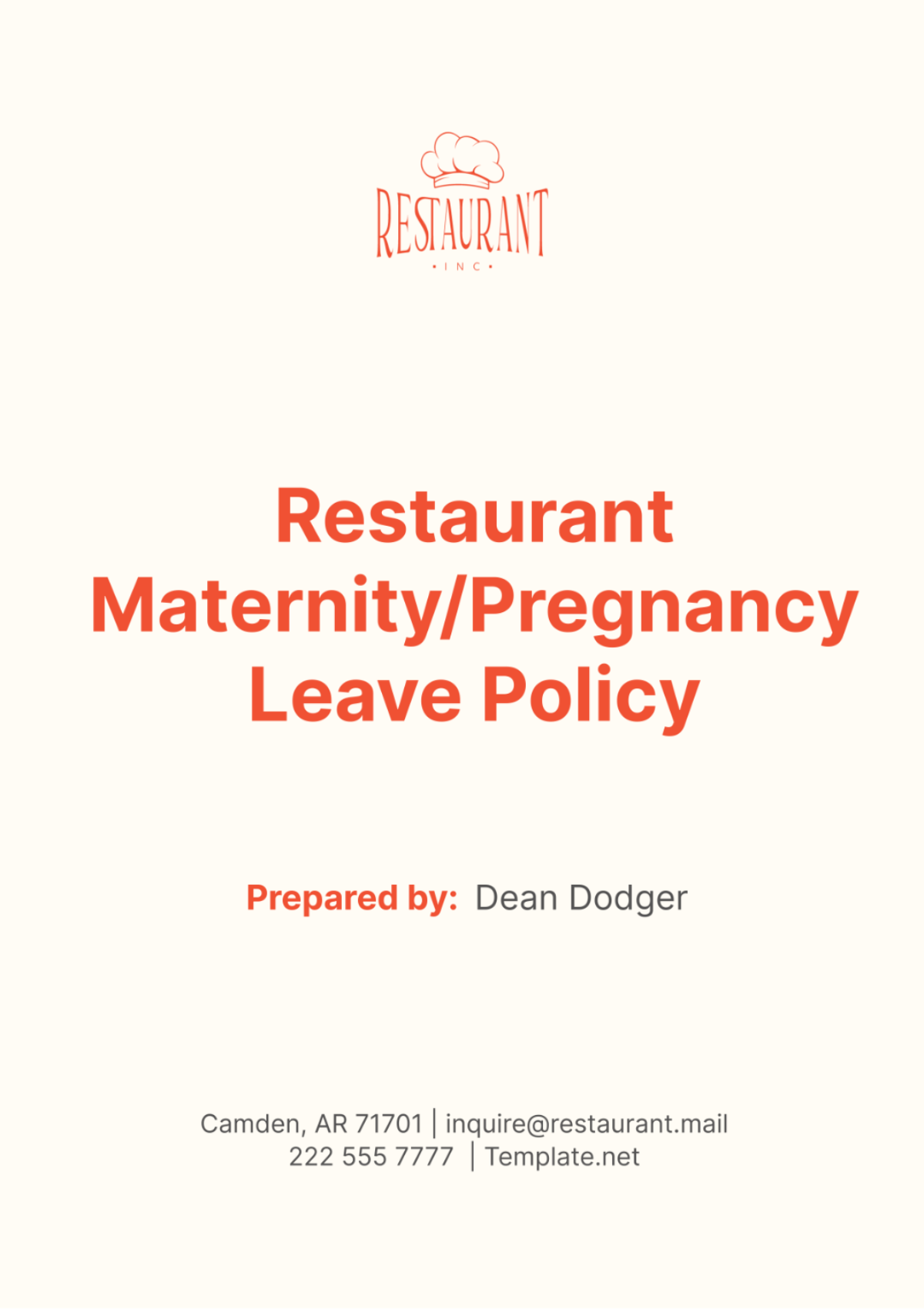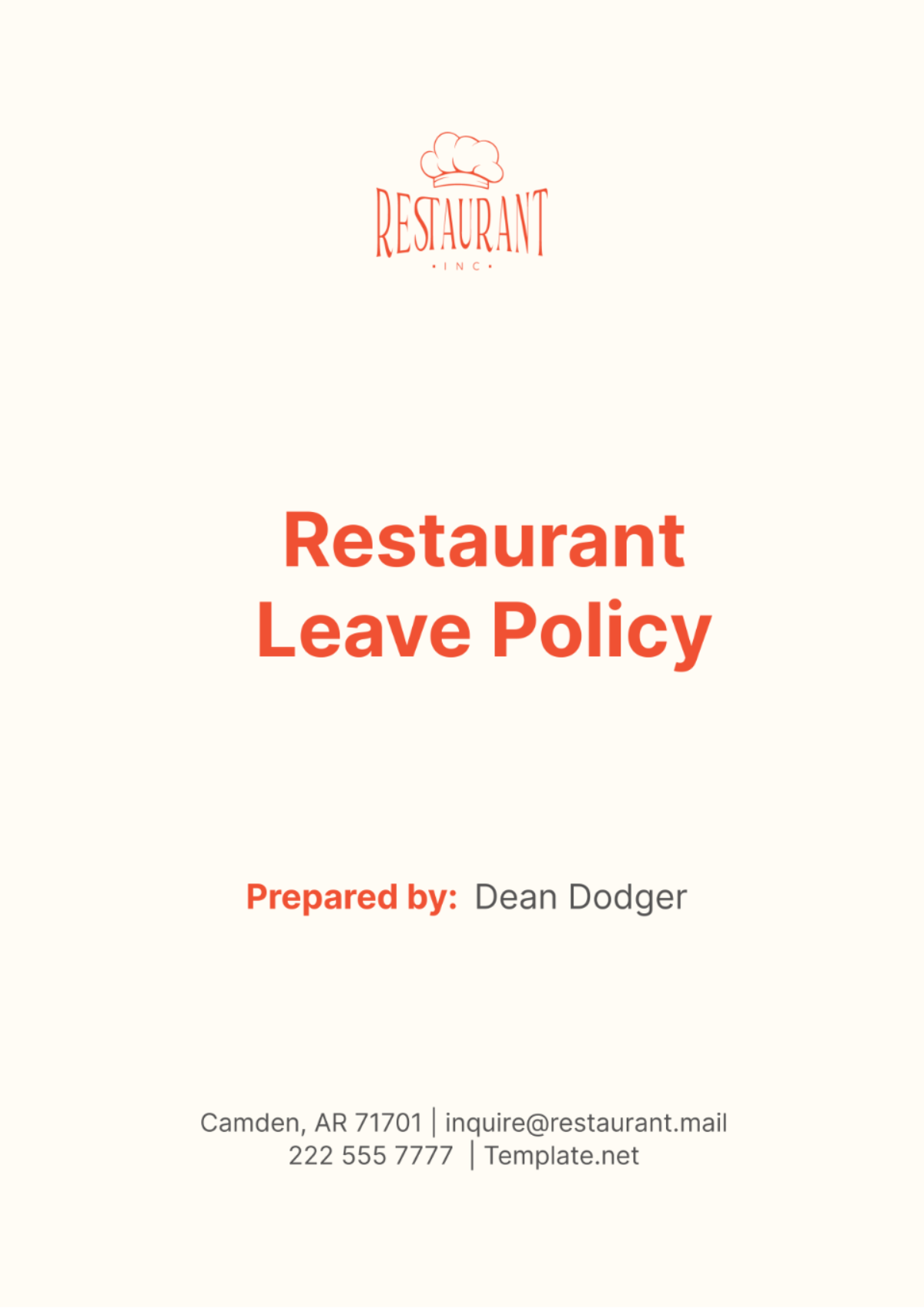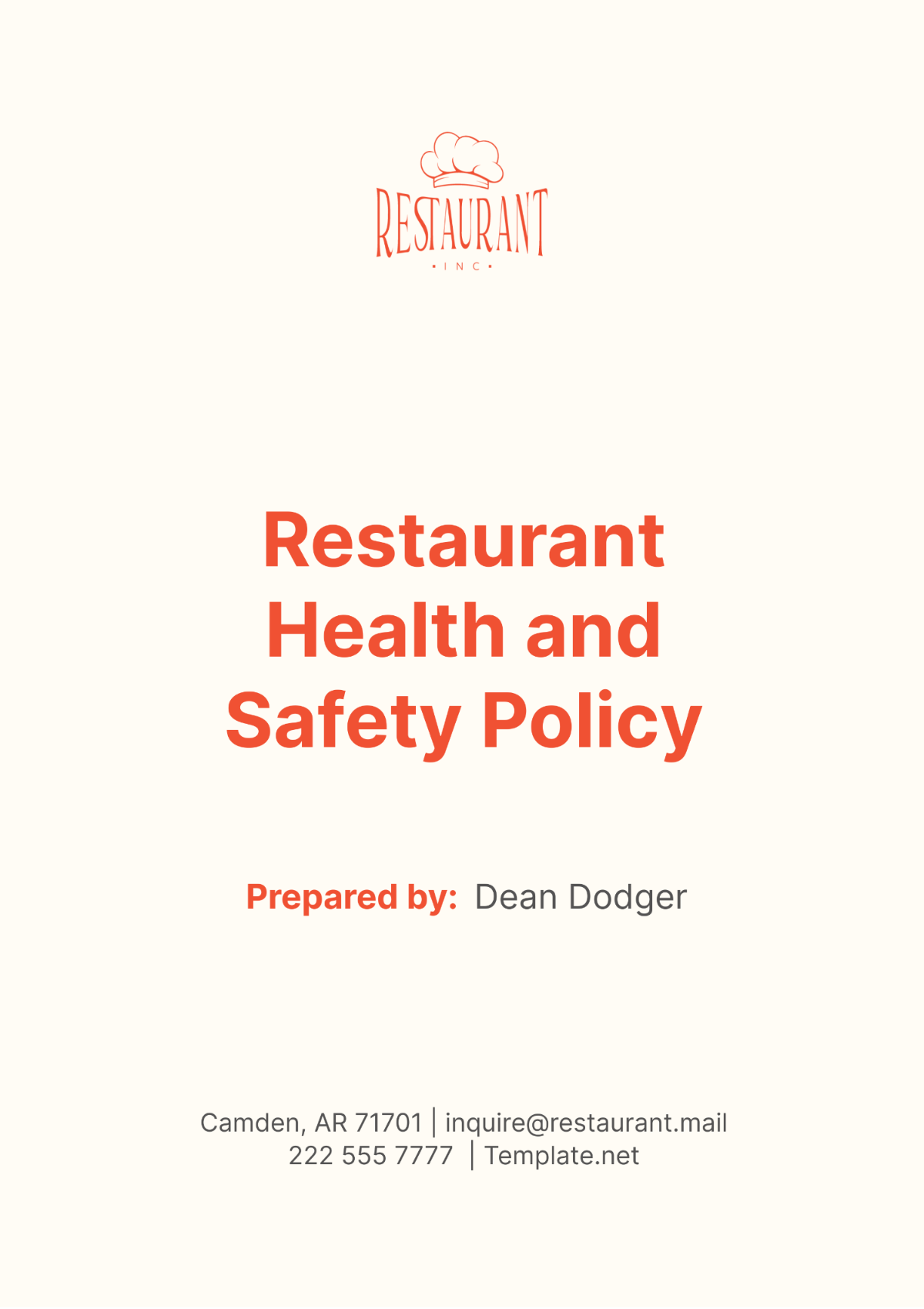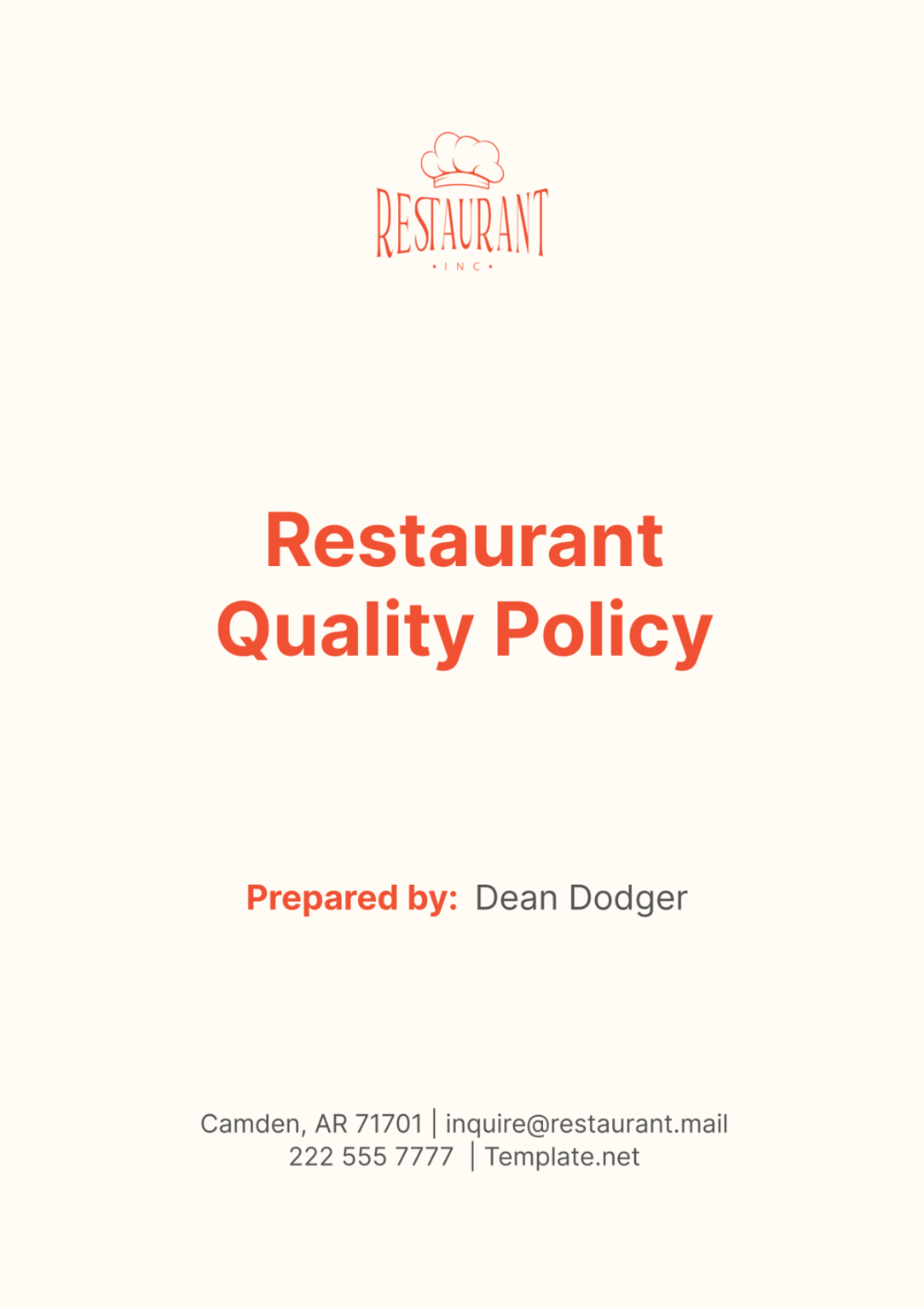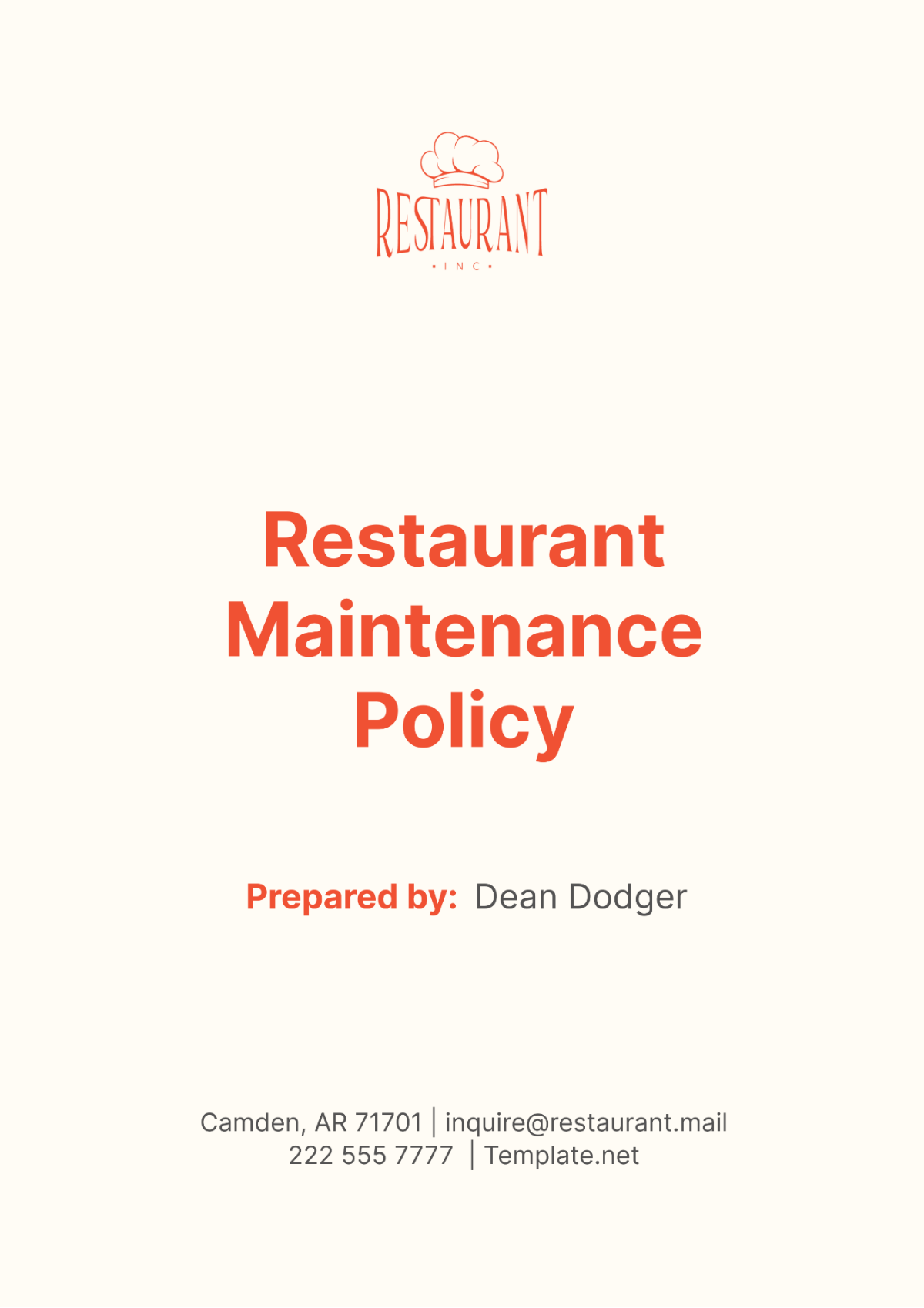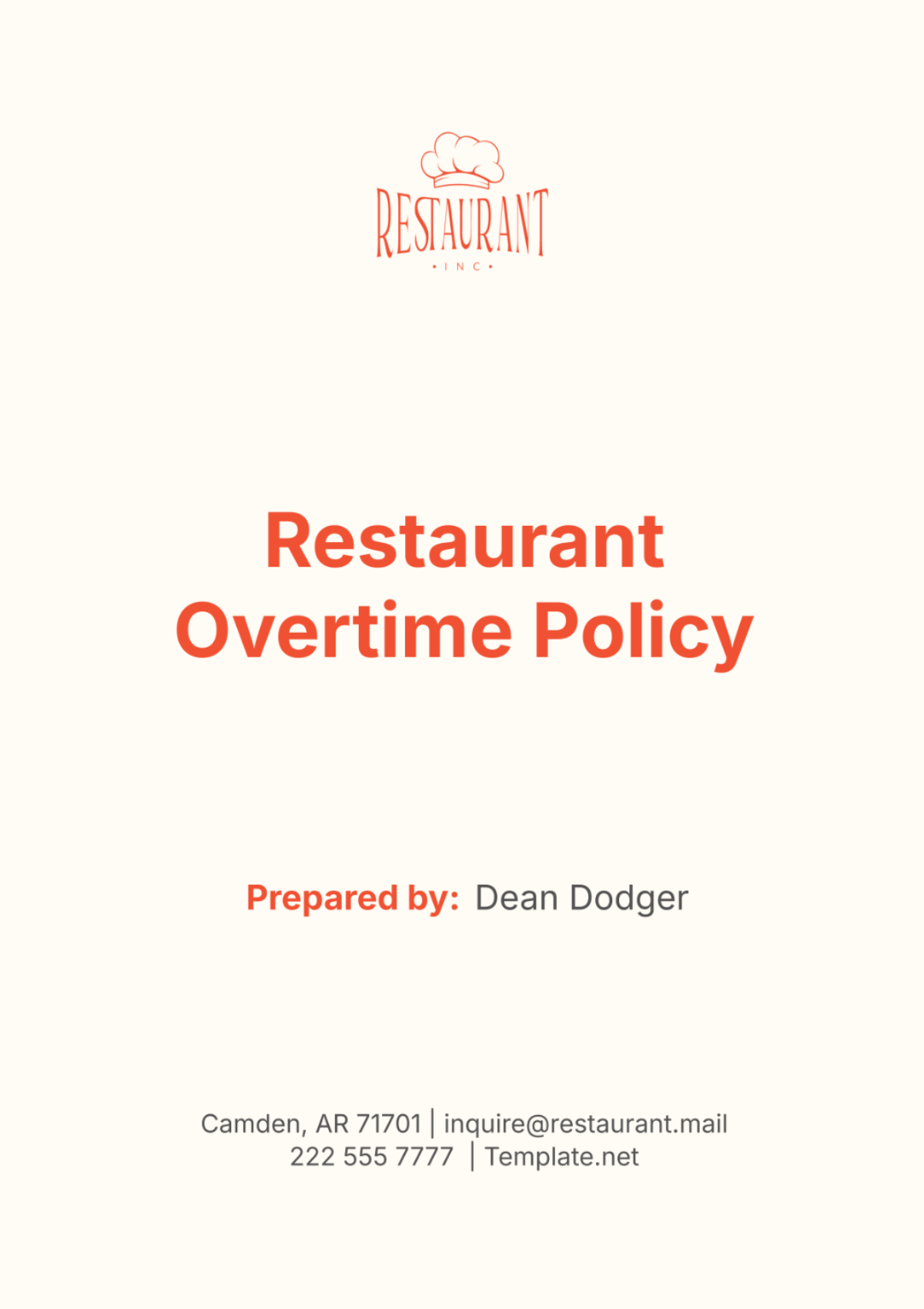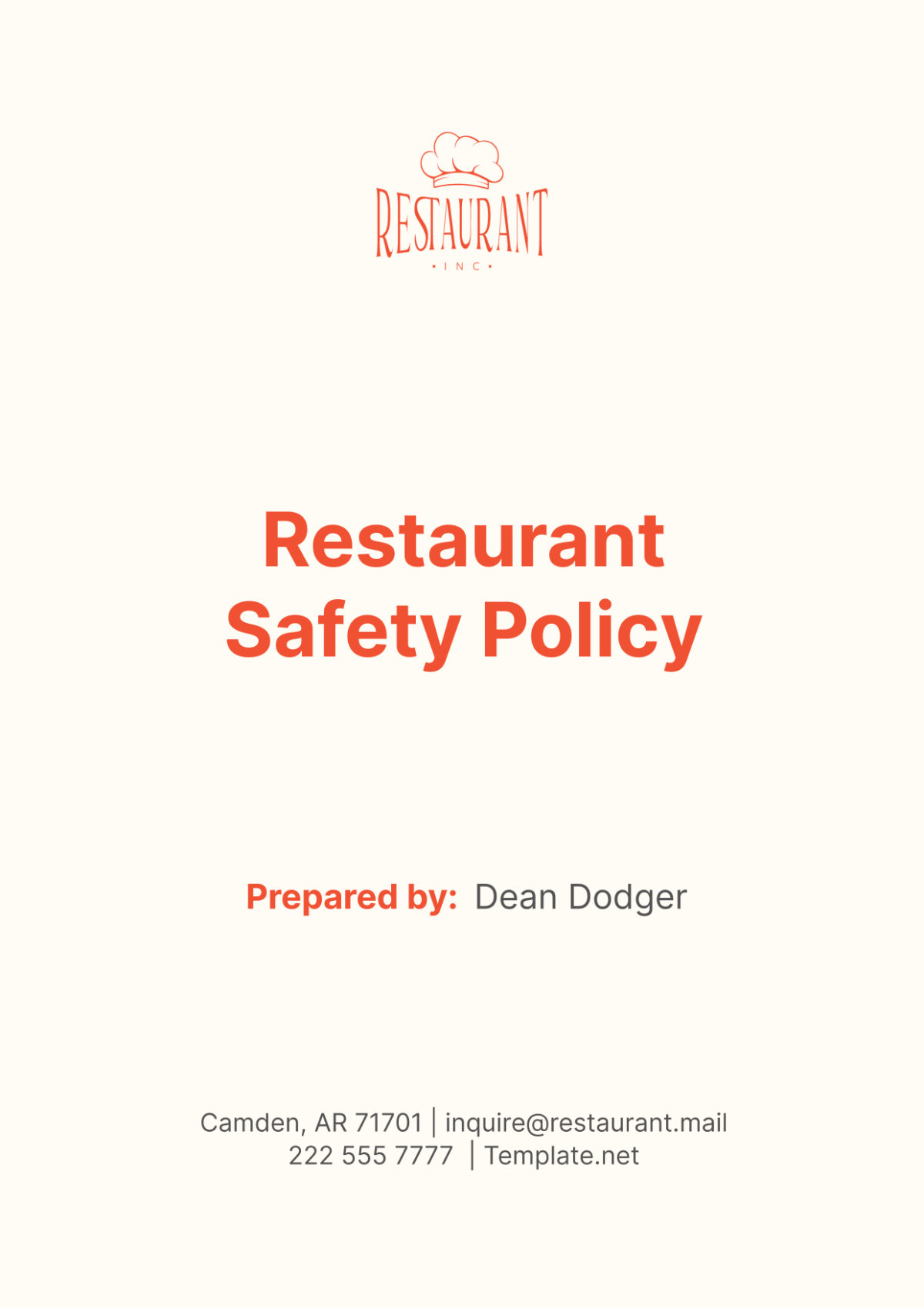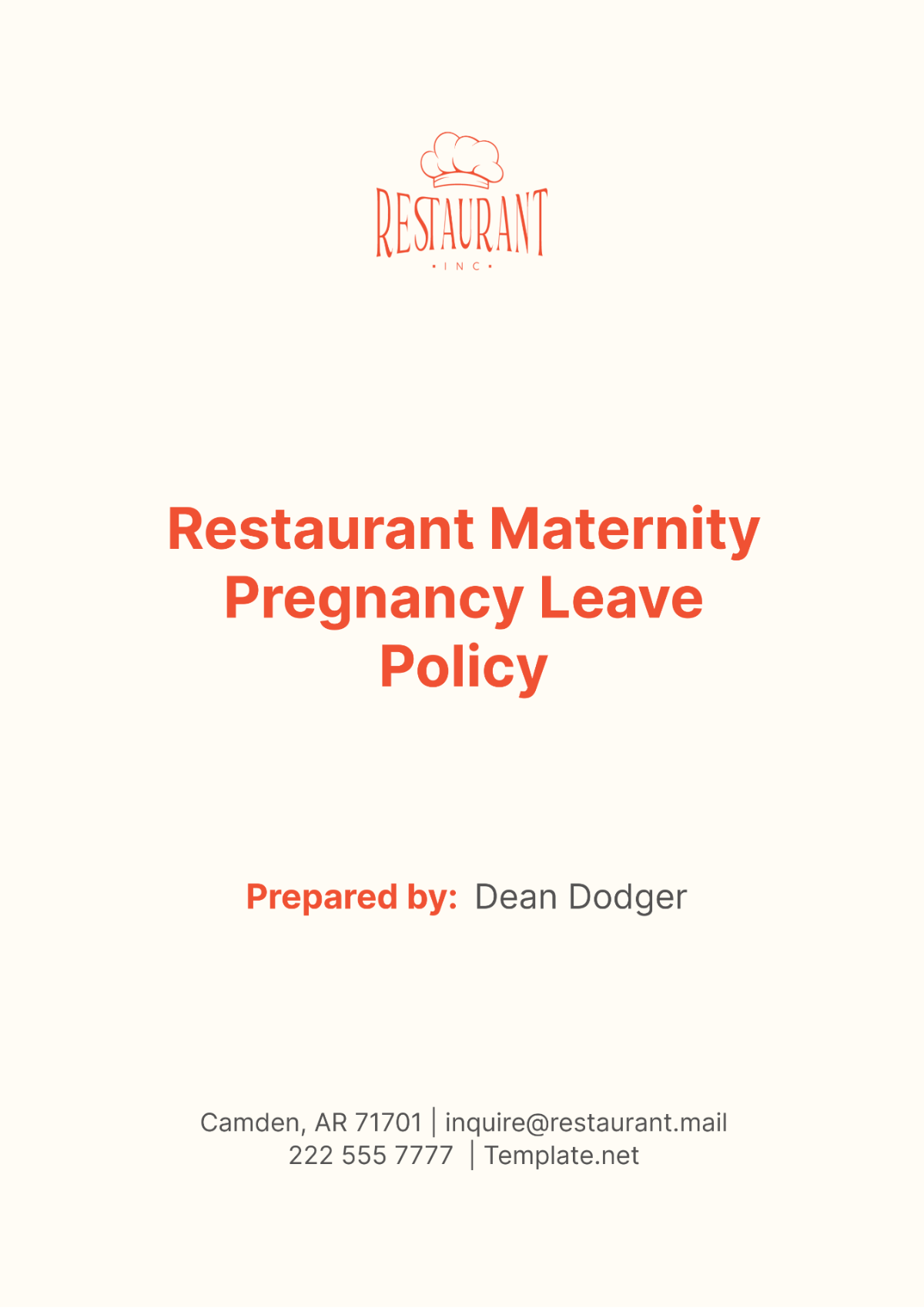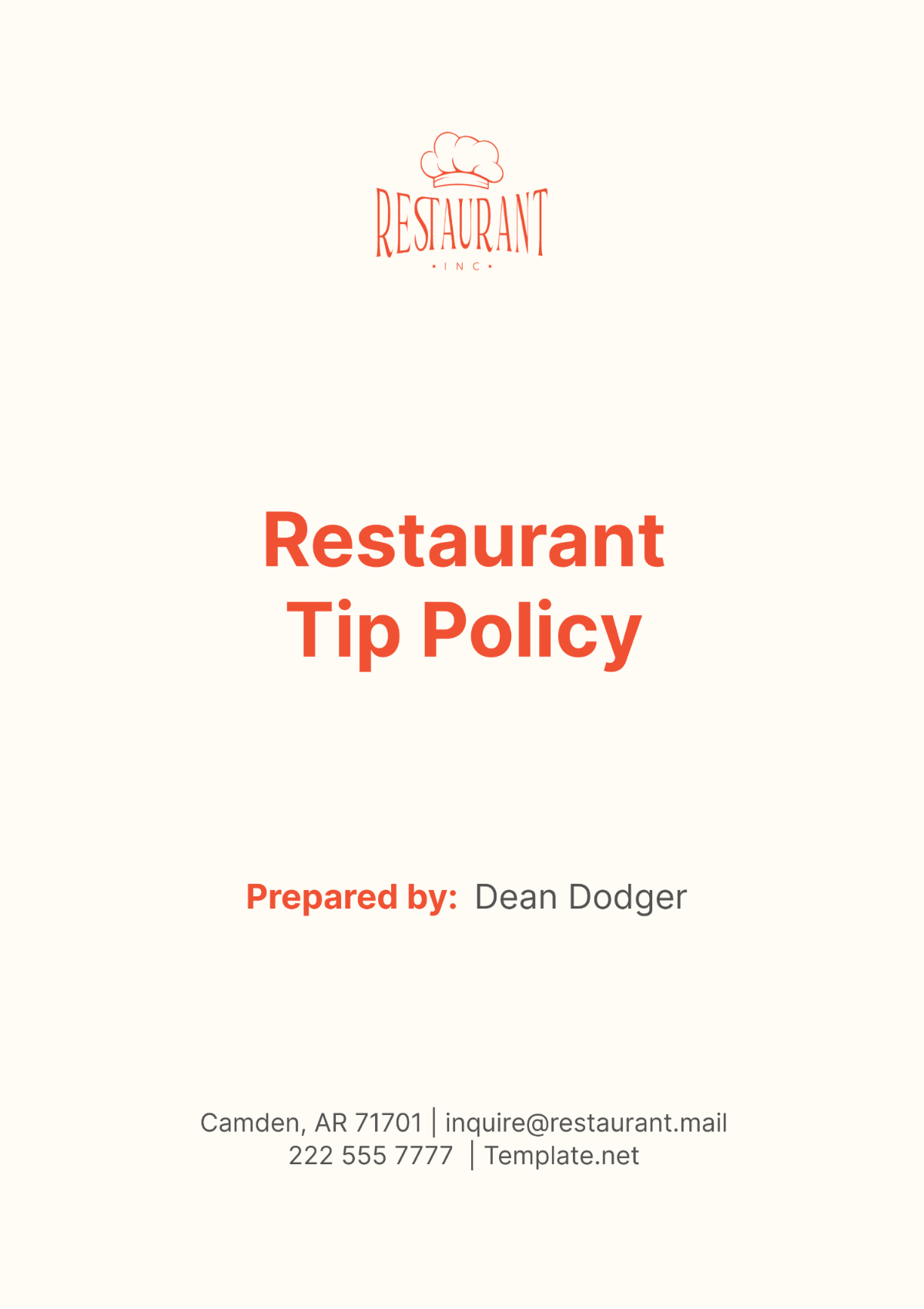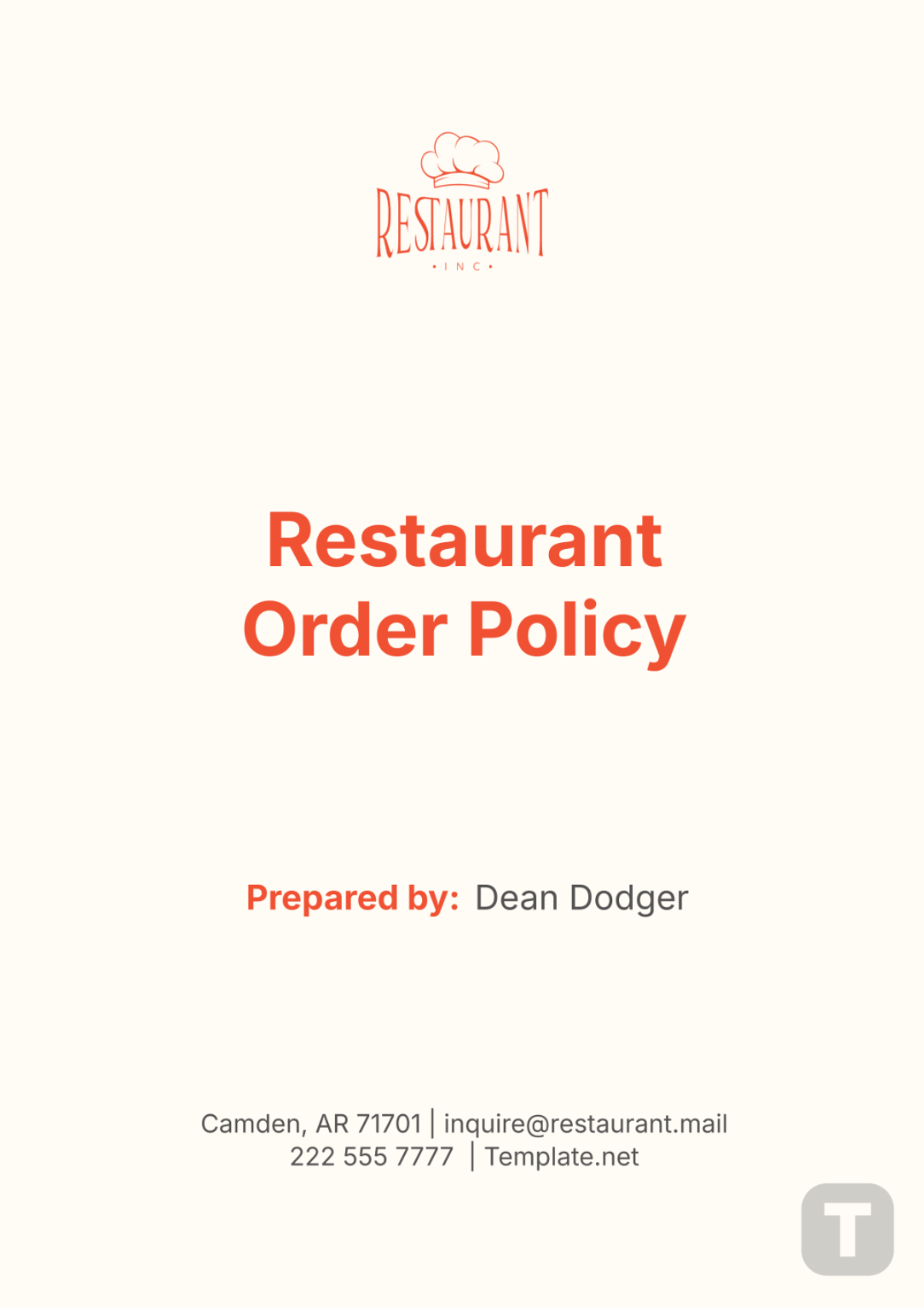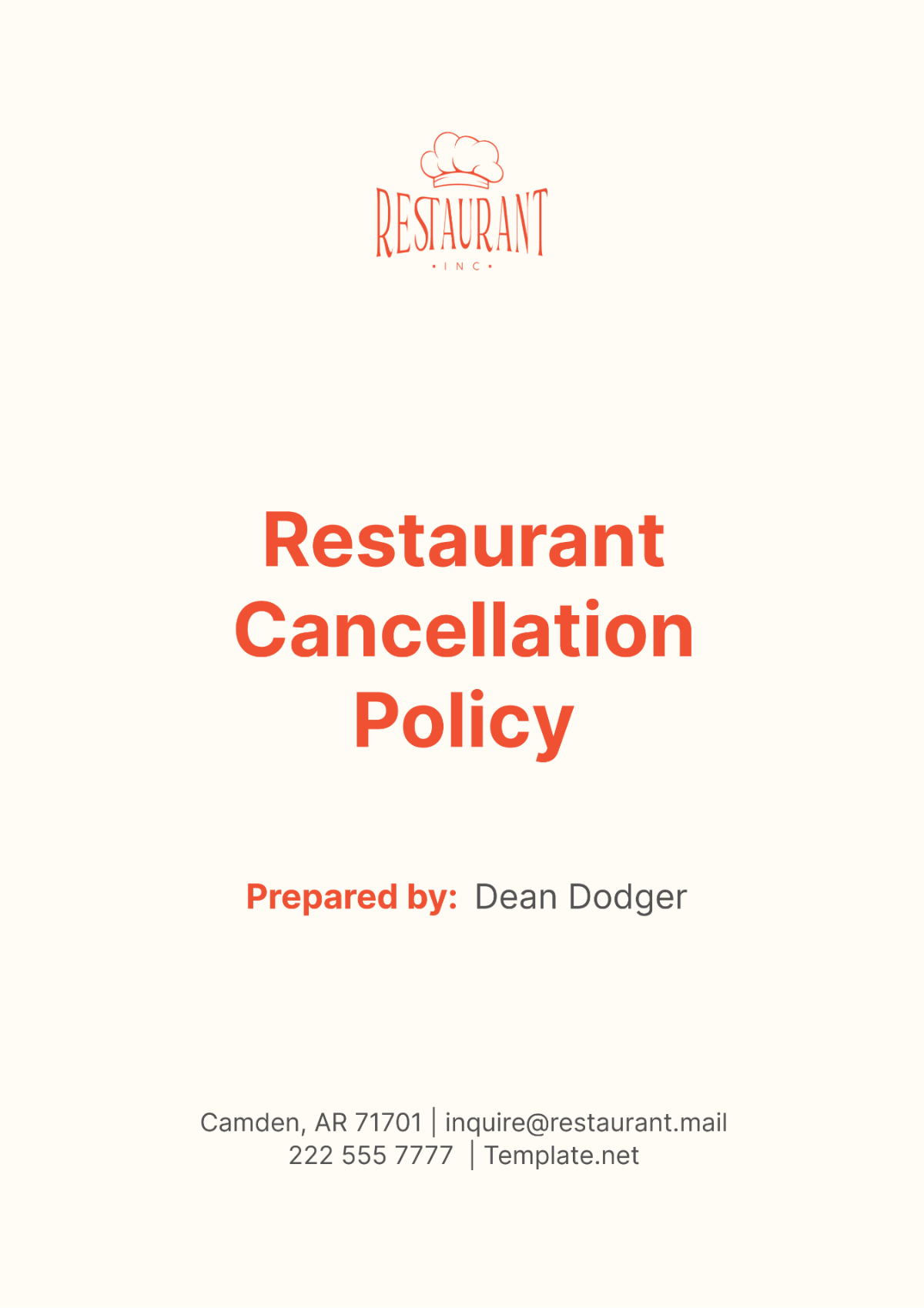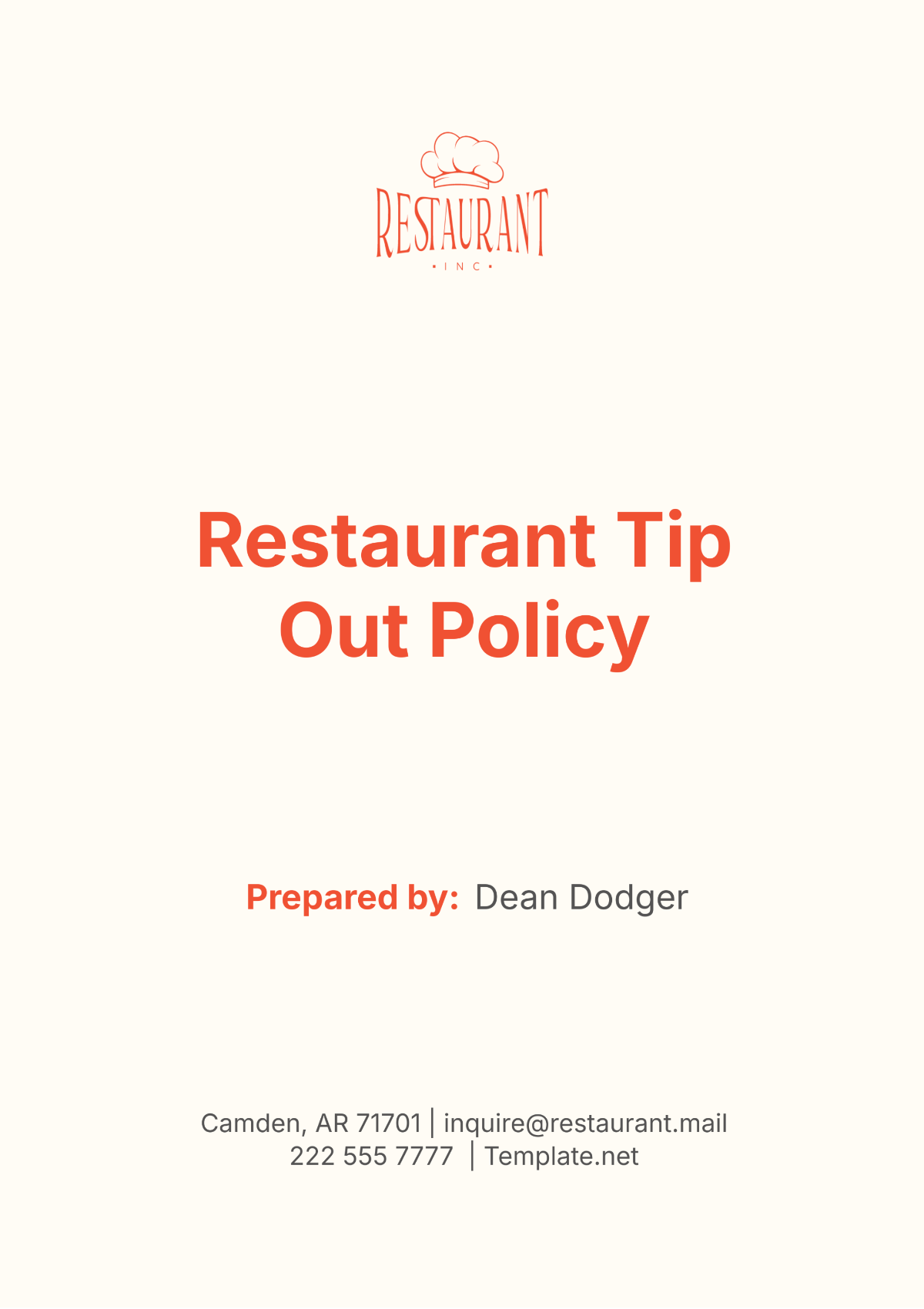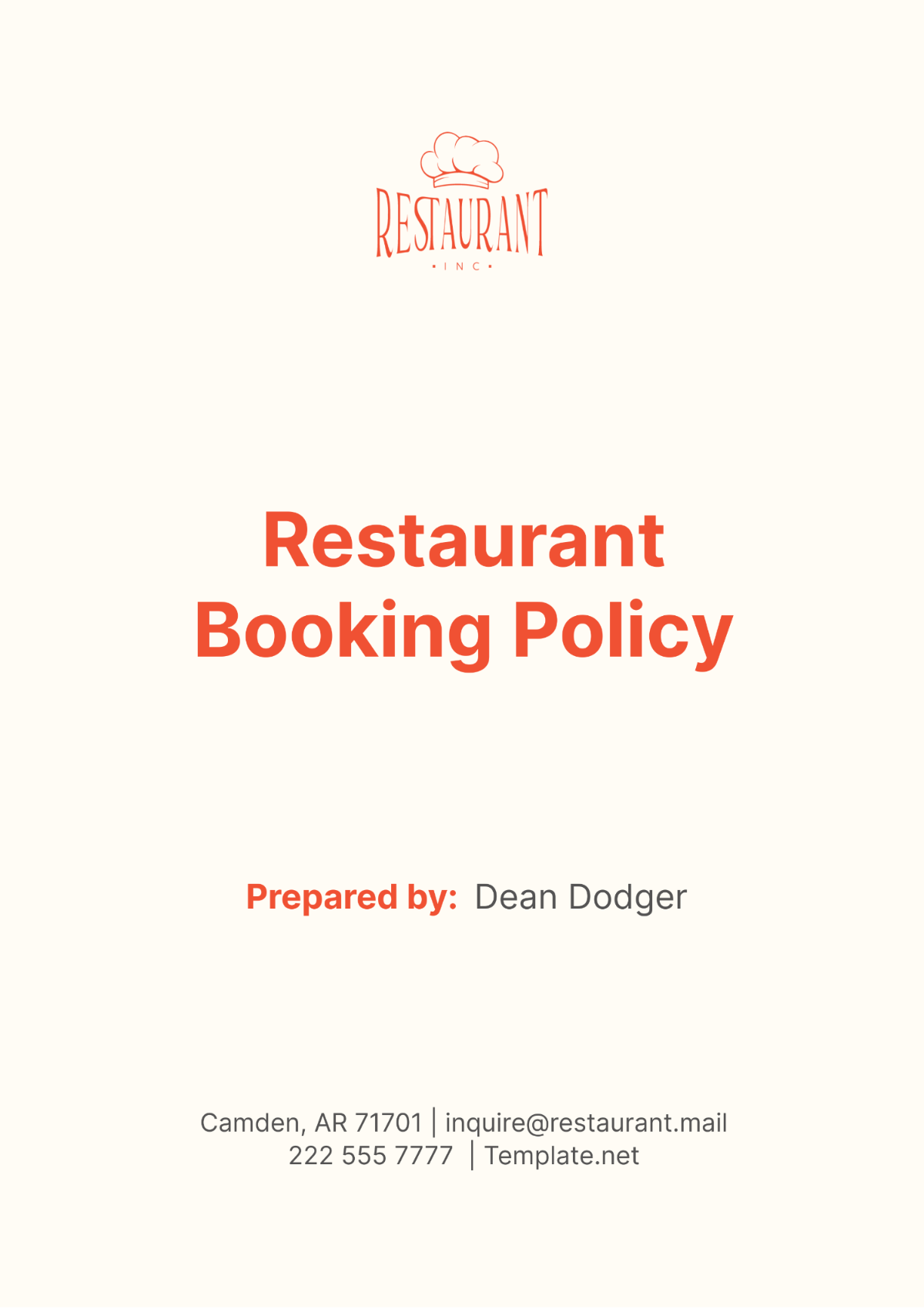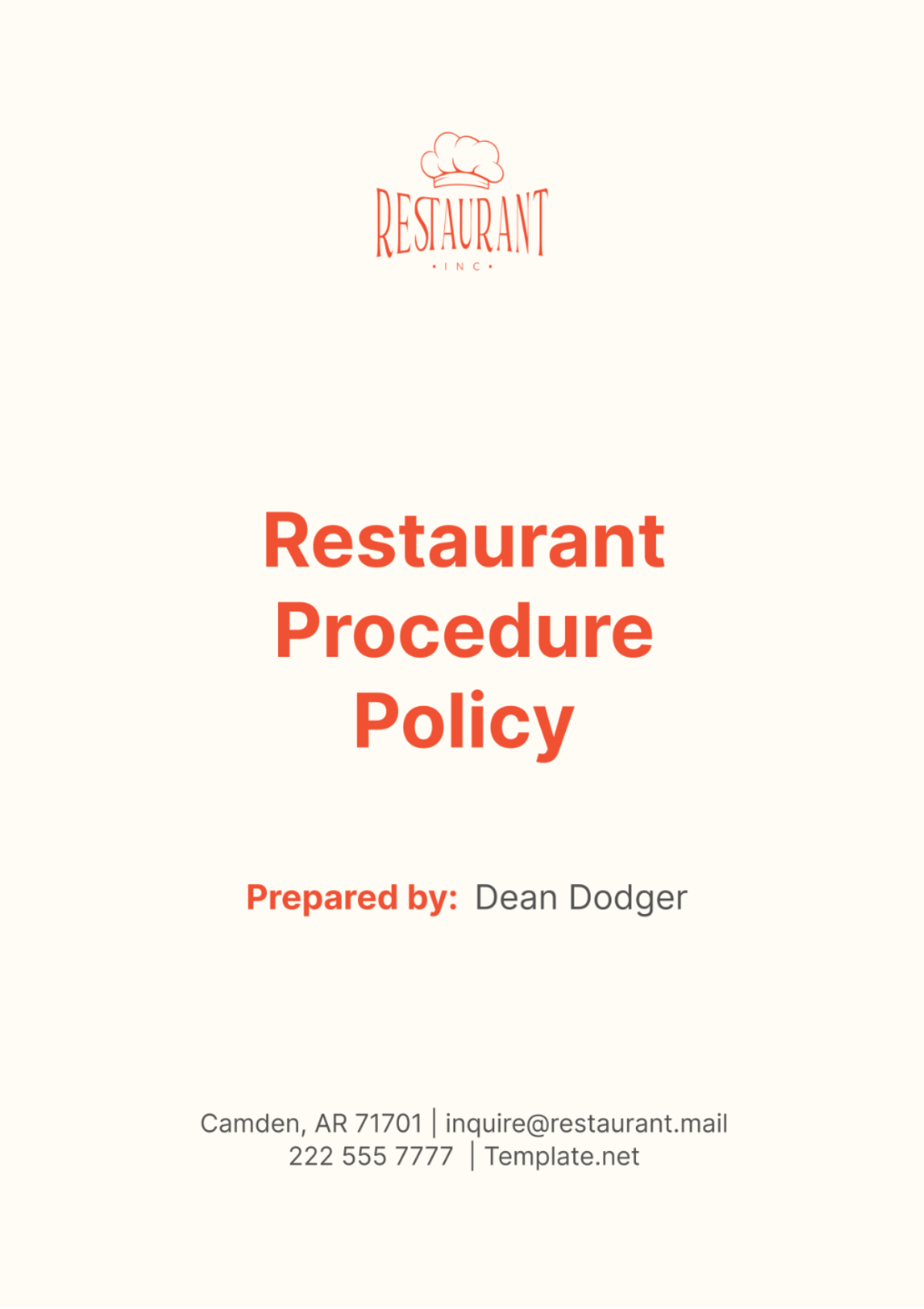Effective Date: [Month Day, Year]
1. Purpose and Scope
The primary aim of the Restaurant Use / Usage Policy is to clearly delineate the acceptable usage of the restaurant’s facilities and resources, thereby ensuring that all operations are conducted in accordance with legal standards and the core values upheld by [Your Company Name]. This policy is comprehensive and universally applicable to all individuals who interact with the restaurant’s environment, including employees, patrons, and business partners.
It specifies the permissible activities within the restaurant’s premises and the appropriate handling of its assets. The scope of this policy encompasses everyday operational practices, aiming to prevent misuse of the restaurant's resources and promote a culture of responsibility and respect.
2. General Guidelines
To maintain a safe, professional, and respectful environment, it is imperative that all stakeholders adhere to the following guidelines consistently:
a. Dress Code: All employees and patrons must wear proper attire that is suitable for a dining environment. This includes clean, professional clothing that adheres to the restaurant’s dress code policy. Employees must also wear any required uniforms or safety gear as specified by their job roles.
b. Conduct: Professionalism, courtesy, and respect towards all individuals on the premises are paramount. This includes using polite language, maintaining decorum, and displaying considerate behavior towards colleagues, customers, and partners.
c. Health and Safety Compliance: Strict adherence to all health and safety regulations is required. This includes following sanitation practices, adhering to food safety guidelines, and complying with local health department regulations to ensure a safe dining and working environment.
d. Restricted Access: Entry into unauthorized areas of the restaurant is strictly prohibited unless explicit permission has been granted. This rule is in place to ensure the safety and security of both personnel and the restaurant’s assets.
3. Use of Technology and Equipment
The responsible utilization of technology and equipment is critical for the smooth operation of the restaurant. Adherence to the following protocols is required to ensure the integrity and security of the restaurant’s technological and physical resources:
a. Purposeful Use of Equipment: All restaurant-provided equipment and technology should be used exclusively for business-related activities. This ensures that resources are effectively utilized for their intended purposes, supporting the restaurant’s operational goals.
b. Personal Use Restrictions: Personal use of company technology should be minimal and must not interfere with the restaurant’s operations. Employees should ensure that their personal activities do not consume bandwidth or distract from their responsibilities.
c. Compliance with Technology Guidelines: All technology, including computers, communication systems, and other electronic devices, must be used in accordance with company guidelines. This is essential to protect the restaurant’s intellectual property and sensitive information from unauthorized access or loss.
d. Reporting Issues: Employees must report any malfunction, damage, or security issues related to equipment or technology immediately to the management. Prompt reporting helps mitigate risks and prevent potential disruptions to restaurant operations.
4. Protection of Intellectual Property
Our company's intellectual property (IP) is not only a critical asset but also a cornerstone of our competitive edge in the restaurant industry. Protecting this IP is paramount, and adherence to the following protocols is mandatory for all staff:
a. Confidentiality Obligations: Confidential information, including trade secrets, business strategies, and customer data, must not be disclosed to unauthorized individuals. Employees are required to sign confidentiality agreements that bind them to maintain the secrecy of sensitive information.
b. Handling of Proprietary Information: All proprietary recipes, methods, and internal communications should be handled with the utmost care. Access to this information should be limited to individuals who require it for their work responsibilities, and it should be stored securely to prevent unauthorized access or leakage.
c. Prohibition of Unauthorized Use: Unauthorized use, copying, or distribution of company intellectual property, including digital content and physical materials, is strictly prohibited. This includes any form of reproduction of proprietary recipes or business methodologies without explicit authorization.
5. Safety and Health Regulations
Ensuring a safe and healthy environment for both employees and patrons is a critical responsibility. Compliance with the following safety and health regulations is required to maintain our standards of operational excellence:
a. Food Safety and Hygiene: All staff must adhere to established food safety protocols and hygiene standards, which include regular hand washing, proper food storage, and avoiding cross-contamination. These practices are not only regulatory requirements but are also vital to prevent foodborne illnesses.
b. Reporting of Hazards: Any potential health or safety hazards must be reported immediately to the management. This includes broken equipment, spills, or any condition that poses a risk to staff or guests.
c. Emergency Preparedness: Emergency exits and passages must remain clear and unobstructed at all times. Staff should be familiar with all emergency procedures and participate in regular safety drills to ensure readiness in case of an emergency.
d. Safety Training: Participation in safety training sessions is mandatory for all employees. These sessions are designed to familiarize staff with safety procedures and equipment, enhancing the overall safety culture within the restaurant.
6. Enforcement and Violations
Adherence to the Restaurant Use / Usage Policy is critical, and violations will be met with strict disciplinary actions:
a. Disciplinary Actions: Failure to comply with this policy may result in disciplinary measures, including but not limited to written warnings, suspension, termination of employment, or a ban from the premises, depending on the severity of the violation.
b. Legal Consequences: Violations of legal standards, such as theft of intellectual property or breaches of health and safety regulations, will be reported to the appropriate authorities. Such actions can lead to legal proceedings against the individual responsible.
7. Customer Interaction and Service Standards
Delivering exemplary customer service is a fundamental aspect of our restaurant’s operations. To uphold the highest standards of customer interaction, all employees are required to follow these guidelines:
a. Professionalism and Courtesy: Employees must always display a high level of professionalism and courtesy. This includes greeting customers warmly, addressing them politely, and handling any requests or complaints with tact and efficiency.
b. Responsiveness: Staff should be attentive and responsive to customer needs, ensuring that service is prompt and that any issues are addressed immediately. This responsiveness is crucial not only for customer satisfaction but also for the efficient operation of the restaurant.
c. Privacy and Discretion: Employees must respect the privacy of customers by handling personal information discreetly and securely. This includes not sharing customer details without consent and ensuring that all transactions are conducted confidentially.
8. Training and Development
Continual professional development is key to maintaining our restaurant’s competitive edge and high standards. The following initiatives are integral to our training and development framework:
a. Regular Training Sessions: Employees will undergo regular training sessions that cover various aspects of restaurant operations, including customer service, food safety, and the use of new technology or equipment.
b. Skill Enhancement Programs: We offer skill enhancement programs to help employees improve their culinary techniques, customer service skills, and management capabilities. These programs are designed to foster career growth and enhance the quality of service provided.
c. Performance Reviews: Regular performance reviews are conducted to assess employee progress and identify areas for improvement. Feedback from these reviews will be used constructively to guide further training and development efforts.
9. Environmental Sustainability Practices
Environmental responsibility is integral to our restaurant’s operations. We are committed to implementing sustainable practices that minimize our environmental impact:
a. Waste Reduction: We strive to reduce waste by implementing recycling programs and reducing unnecessary packaging. Food waste is minimized through careful inventory management and innovative menu planning.
b. Energy Efficiency: The restaurant uses energy-efficient appliances and systems to reduce our energy consumption. We also encourage practices such as turning off unused equipment and using energy-saving modes.
c. Sustainable Sourcing: Whenever possible, we source ingredients from local, sustainable farms and suppliers. This not only supports the local economy but also reduces the environmental impact associated with long-distance transportation.
10. Contact Information
If you have any questions or require clarification regarding this policy, please contact us at:
Email: [Your Company Email]
Phone: [Your Company Number]
This Restaurant Use / Usage Policy will be reviewed and updated periodically to ensure compliance and relevance. Thank you for your cooperation in maintaining a safe and respectful environment.
